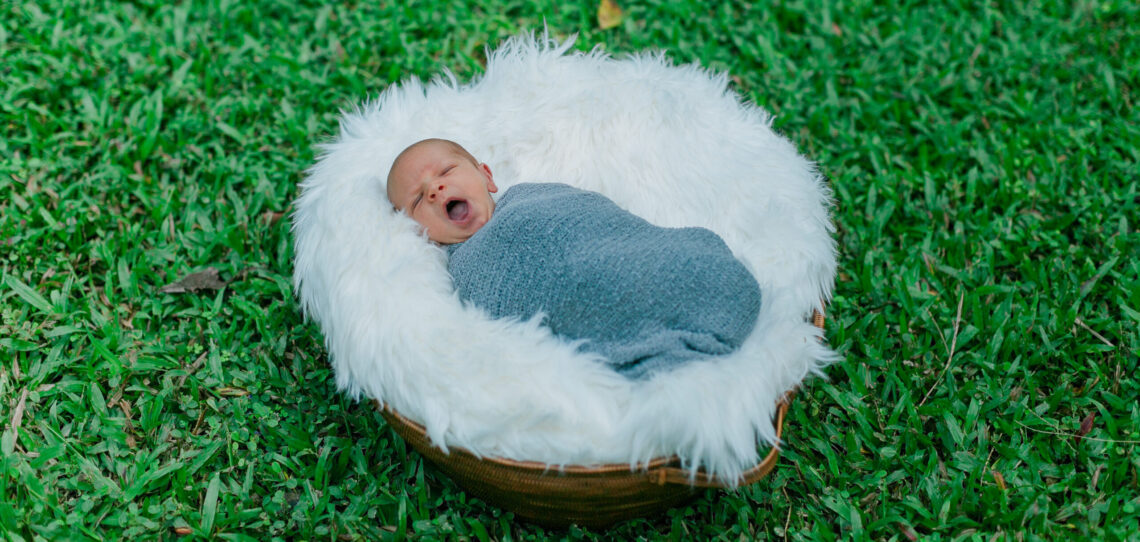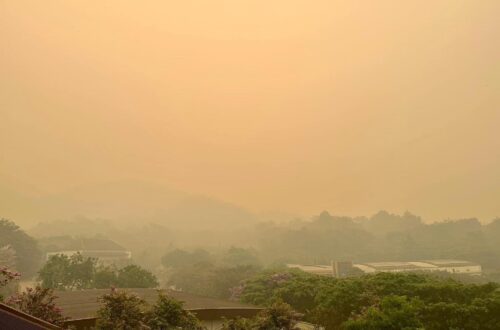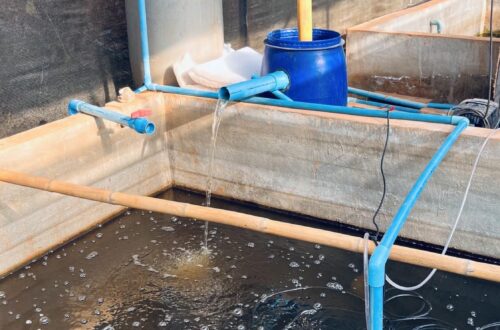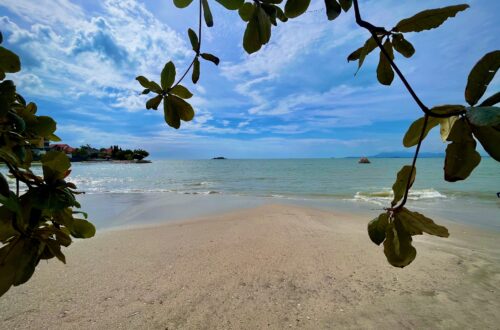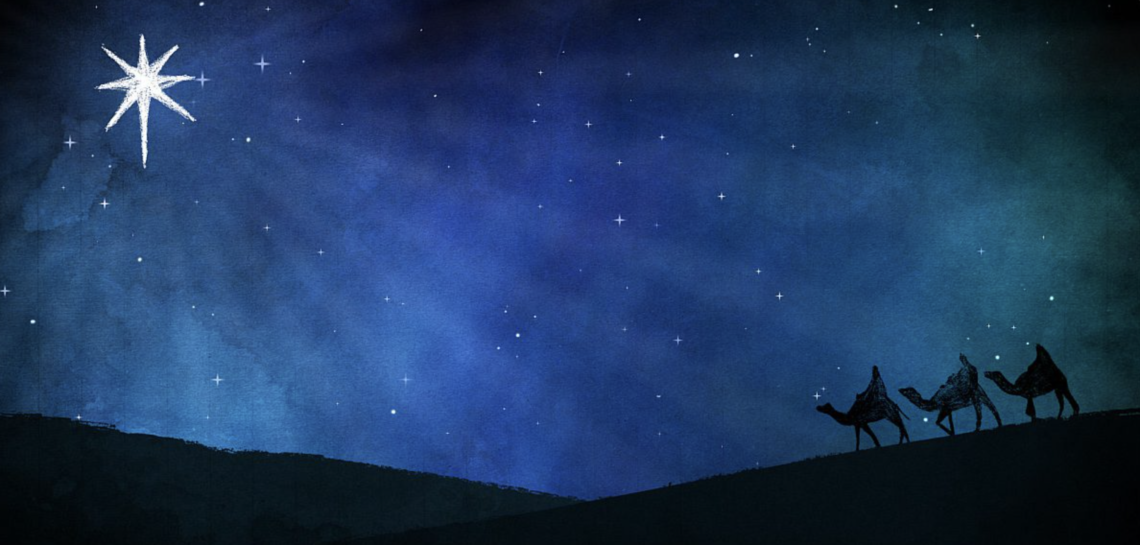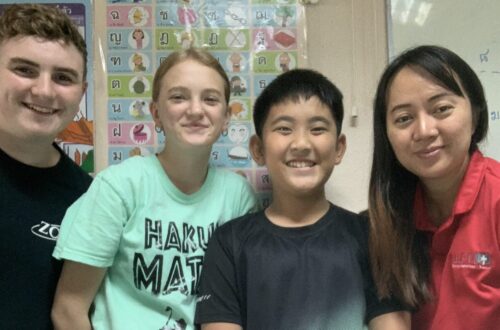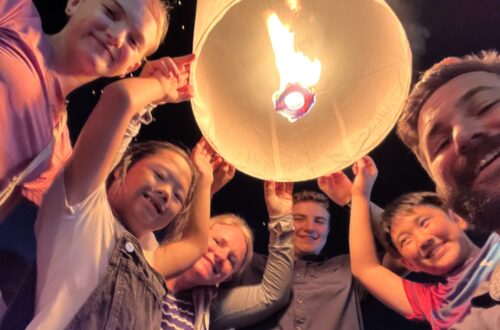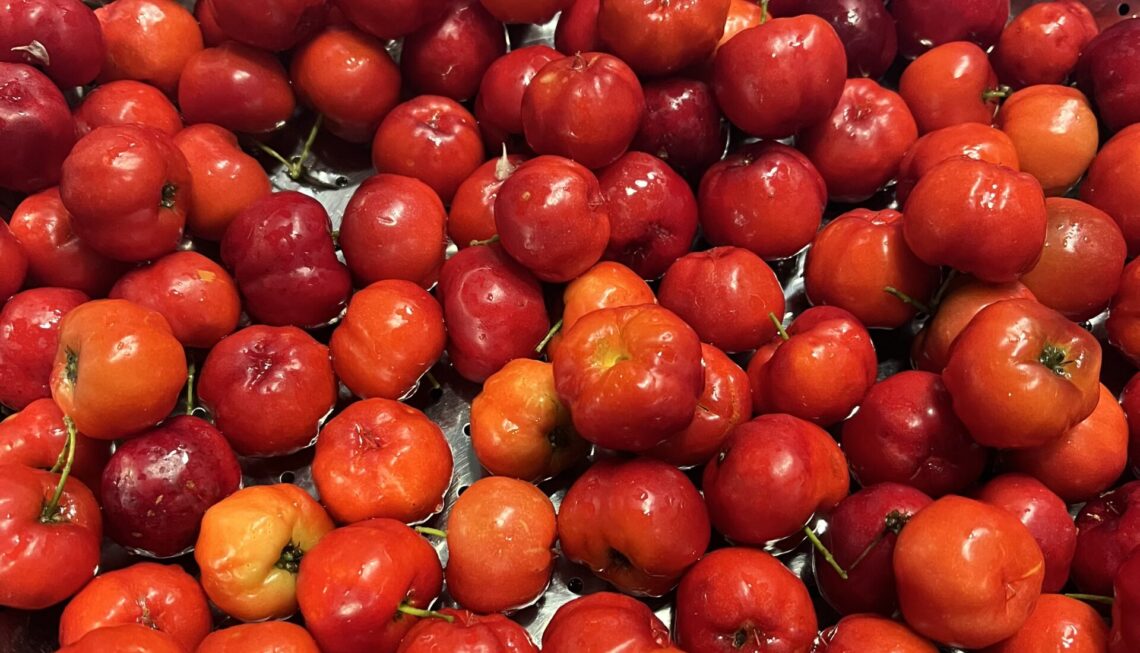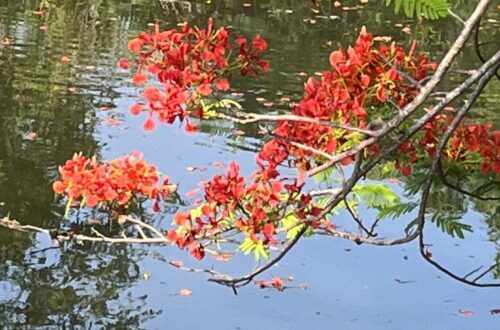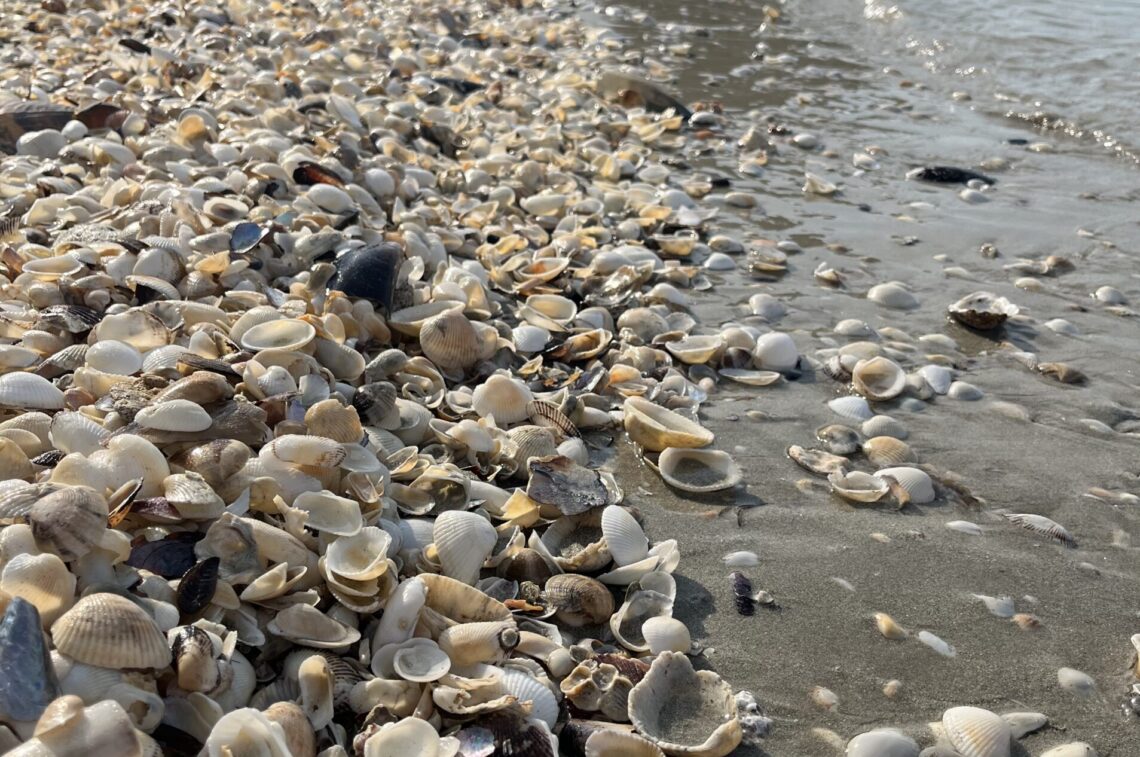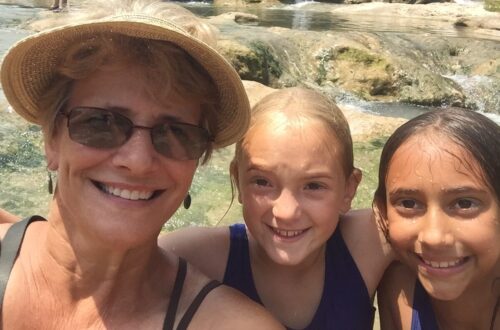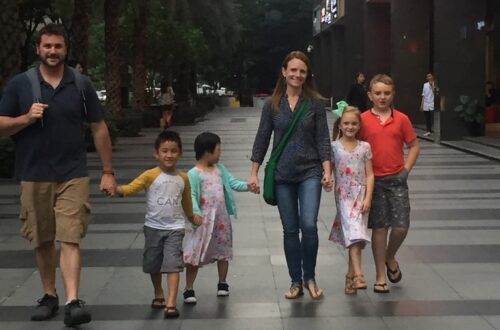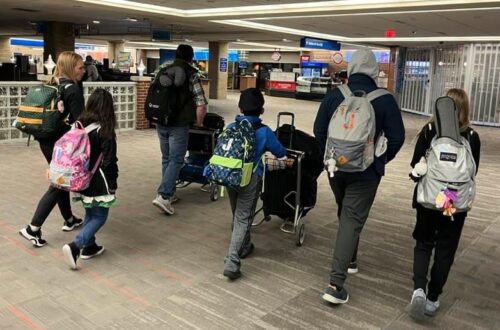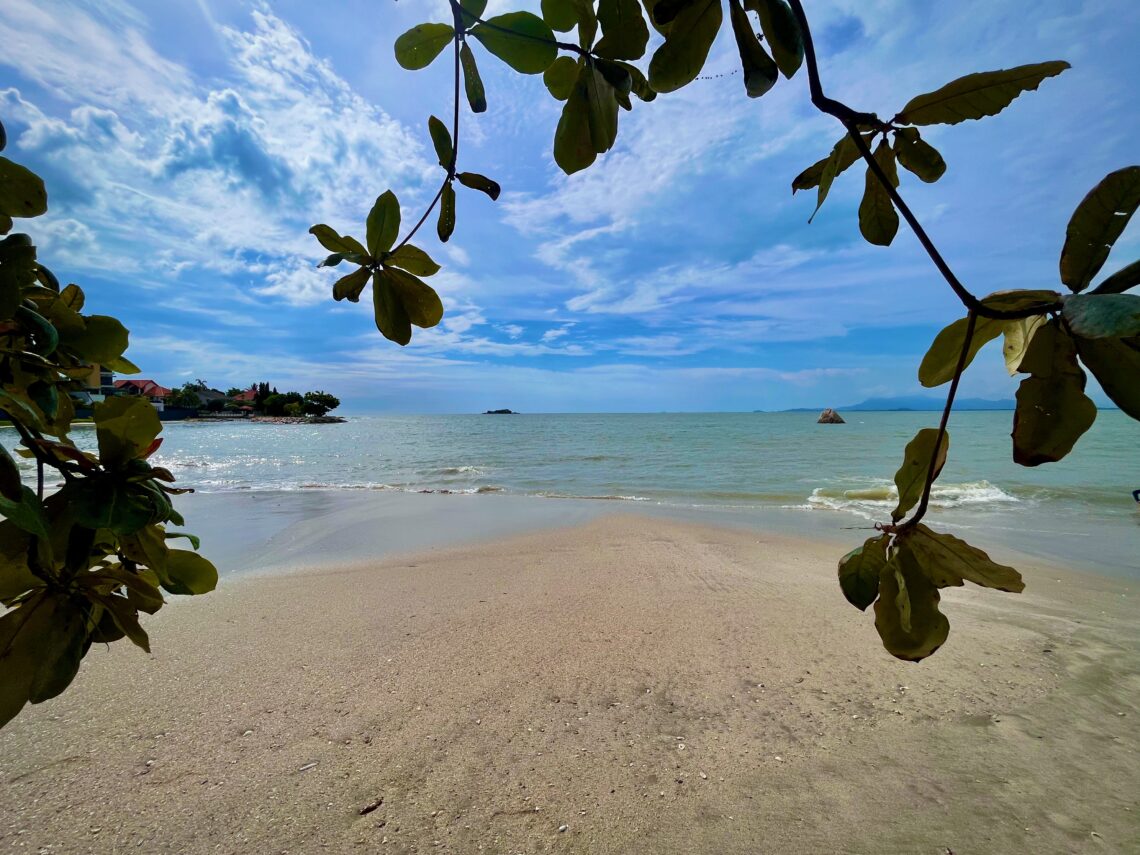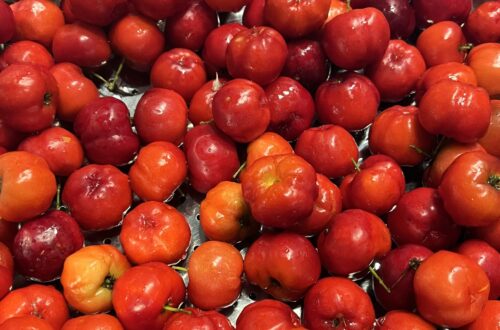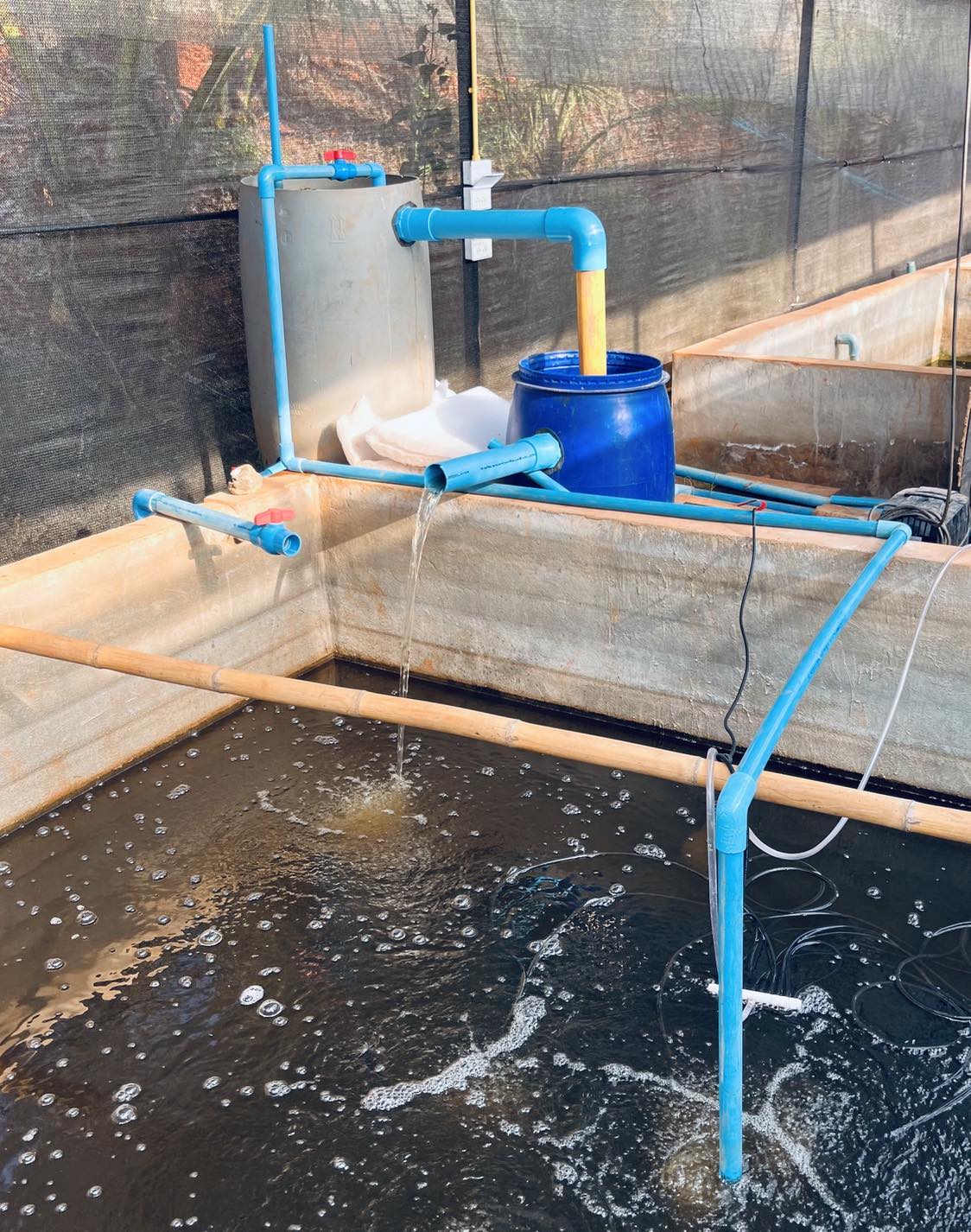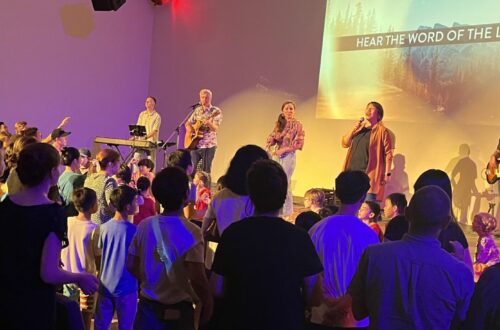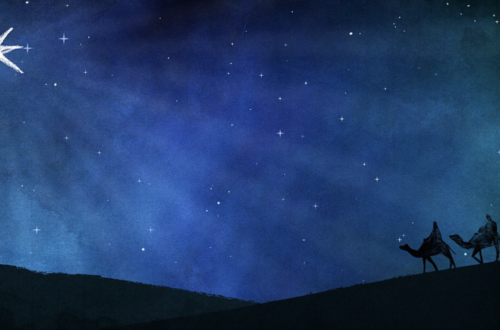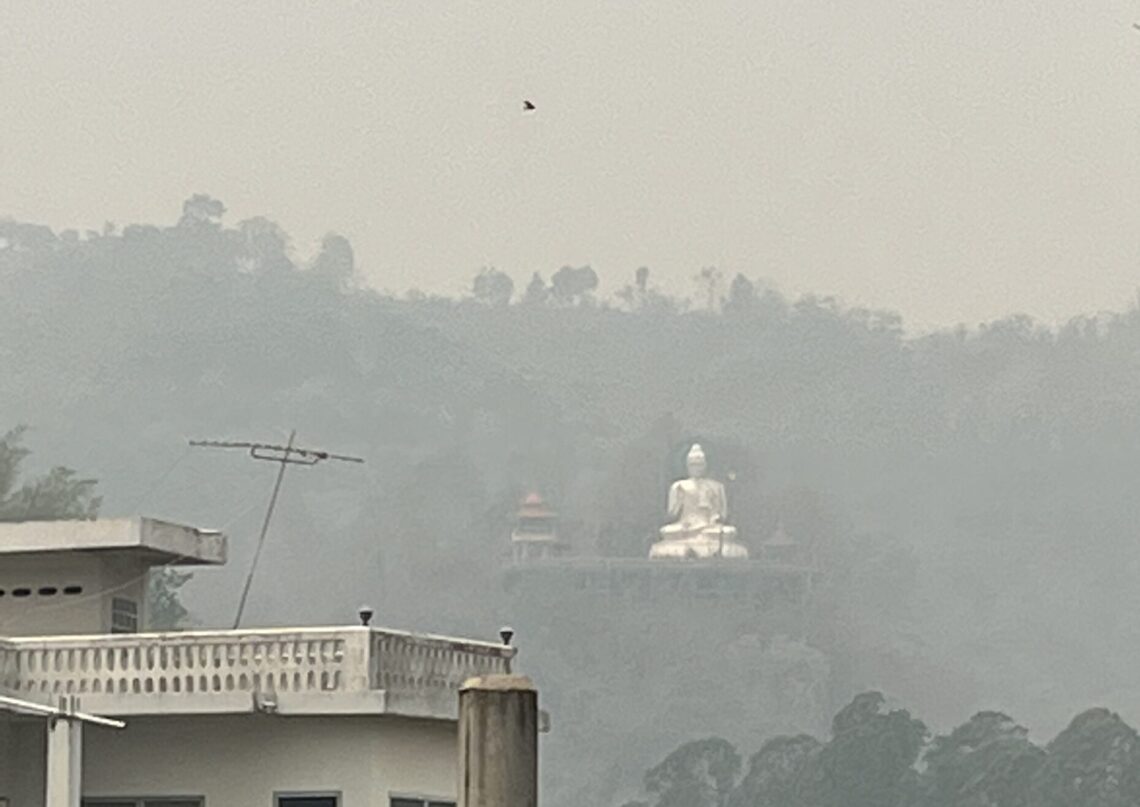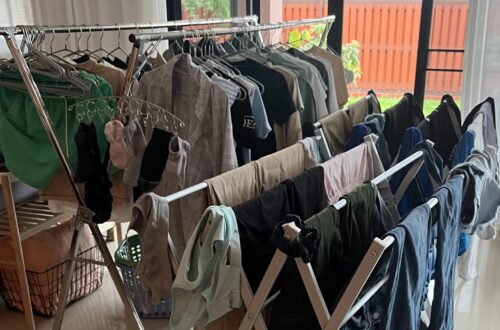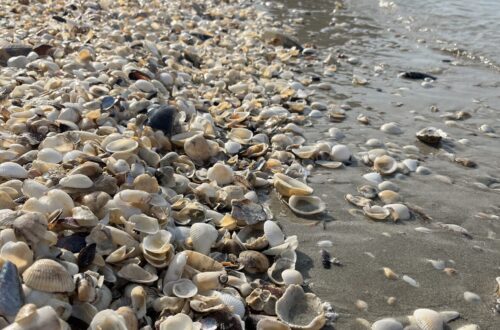-
Good News of Great Joy
God has woven our story.
When we were preparing to move to Thailand, we told many people the story of how God had been working in our lives for nearly twenty years to bring us to this calling and prepare us for this work. I shared about my hesitation to accept that God would be calling us to move to the other side of the world right when it felt to me that it was time to move into a more settled season for our family.
You see, it was just as we were finishing up on renovations of our first home (a fixer-upper in Colorado) that it was time for Rod to move from his job in law enforcement in CO to work on the family ranch in North Central Nebraska, so we moved to a new home that had recently suffered significant flood damage (an even bigger fixer-upper). It was just about when we were finishing up renovations on the ranch home that we needed to move to town to pour our energy into a new business venture that we were struggling to get off the ground. This move came with another new home: the biggest fixer-upper project yet. I told anyone who came to listen to our story that, as we neared the completion of our latest and greatest home renovation project, I had started to really dig my feet in. “Don’t make me move” became a mantra I repeated in contexts that hardly warranted such “drama.” So when Rod told me he was feeling called to move—not just to a new house and a new job—but to the other side of the world, I did not respond with the ready “Here I am LORD; Send me.” that my 10 year old self had longed for an opportunity to say.
When sharing our story, I admitted that I could see how the hand of God had been preparing my husband for this next adventure in every place he had sent us. Rod’s criminal justice degree, elite police academy training, and work in law enforcement had prepared him for the work he was being called to do in rescuing victims of child trafficking. When managing the family ranch in Nebraska, he had gained expertise in land management that would prove useful in helping to establish self-sustainable practices at the ZOE Child Rescue Center and Children’s Home. The knowledge and skills he developed while operating our own small businesses would also be instrumental in other projects ZOE is currently pursuing. It was not hard to see God’s hand at work in beautiful ways in my husband’s story, and I am sincerely honored that his story is my story, too. Of course we would follow God in this next adventure!
That story I told was true. All of it. But it wasn’t the whole story. There is another very important thread woven into each of those homes we lived in, loved, and left. You see, there was another calling on my life that, in the midst of all our pursuits, sometimes seemed to take the back seat. Relying on God’s sovereignty, I trusted it would all come together in His time…which often seems to be a bit slower than we expect it will be. But this last, biggest move felt like so many doors closing on my own truest calling…and it was difficult for me to make sense of why God would want to do that.
Another Thread
Let me back up a bit. Early in our marriage, we lived in a one bedroom of a house we shared with three of Rod’s fraternity brothers. After that, we spent a few months in a rented house while preparing to move to Thailand for some missions/relief work we were doing. We stayed in too many places throughout our year in Thailand to even count: but none of them were home. When we moved back to America, we rented a great apartment from which we could invest our time in my seminary studies and Rod’s academy training. It was only when we were pregnant with our first child that we moved into our first home. Building each home, for me, was always—really—about building our family.
Let me back up a bit further. When I was a girl, maybe 10 or 11 years old, I read an article in a “Focus on the Family” newsletter that was sitting on our kitchen counter. It was about a large family that had grown with a mix of biological and adopted children. I told God I wanted to have a family like that someday. He told me that is what HE wanted for me as well. I had such confidence in my call to be the mother of a large family that I always struggled to figure out what other kind of career I might pursue or what other dreams or ambitions might be worth pouring my time, energy, and talents into. In an age where little girls were taught to dream big and shoot for the stars, my heart was inescapably drawn to visions of home and family. In the deepest part of my being, I carried around a picture that God gave me of the family I would have one day: The faces were blurry, but there were a lot of them. In case I have not yet made it clear: the truest calling on my life since I was a girl, and the deepest longing of my heart, has been to have a home filled with a big, beautiful family. That desire and calling is the backdrop of every other story my life might tell.
Growing our family according to God’s timing.
While living in our first home in Colorado, we had our first two children. Honestly, compared to stories others tell, those pregnancies were easy. I was made to do that. Because the picture of my family I carried around in my head included many children that did not look like me, however, we pursued adoption next. We saved up and jumped in as soon as we were allowed (based on rules about the ages of other children in the home). Adoption from Thailand is a long, slow process. It wasn’t until 2015 (over three years after moving to our home at the ranch) that we finally brought Jeremiah home. That same year, we completed all the training and home certification to become licensed foster parents. We said “yes” each time we were asked about a placement, but each time another family was found closer to the children’s home or school district. We inquired about children on adoption advocacy lists who were in foster care waiting for a chance for permanency (usually sibling sets and older children). For one reason or another, we never received any of those placements either.
Doors Closing
When we moved to town, we moved into a home that I knew would not pass all the licensing standards without significant work, so we let our foster care license lapse. That move meant closing some doors in the process of growing our family. However, it was also at that time we were in the beginning stages of our next international adoption process. We saw Tallulah and Elijah in an advocacy post on Facebook and agreed they would be the next children we would pursue for adoption into our family. They were living in a special needs orphanage in China and China’s strict adoption policy stated they could be adopted only one at a time. Tallulah came home to our home in Atkinson in May of 2019. We would have to wait a full year (until May of 2020) to submit our application and dossier to adopt Eli. However, COVID shut the world down beginning in February of that year. Since then, we’ve been stalled in our adoption process as one of many waiting families longing to bring their children home from China.
Honestly, every day that passed with no word from China it seemed less likely the program would never re-open. For years, it has seemed unlikely that our adoption of Eli would ever be completed. Still, hope dies hard, so we did what we could to keep that door open. While we prayed that we would see Eli again on the day he became our son, we also prayed about how else God might desire to grow our family and fulfill this calling on my life.
We knew that our move to Thailand would mean we could no longer adopt children through Nebraska foster care. We knew that we would no longer qualify to adopt a child from Thailand as our family is too large for their international adoption program policies. We also knew that, as missionaries, our income would no longer qualify us for many other international adoption programs, even if we were able to figure our way through the red tape of the immigration process for adopting internationally while living in a different foreign country. We also knew that if we would ever have more children biologically, the clock was ticking, as I am now 40 years old. It seemed we were facing so many closed doors.
Our Plans In God’s Hand
We decided to leave both our stalled Chinese adoption and our chance at having more biological children in God’s hands. A pregnancy would disrupt the adoption of Eli but if we waited too much longer, we might no longer be able to have children biologically. We figured that, even if China DID re-open the program, there were so many families “in line” ahead of us (farther along in the process when it shut down), we might even be able to have a baby while waiting. When it came to be our turn to complete the adoption of Eli, that baby might already be a year old and cause no big complication.
It was just days after scheduling Rod’s scout trip to Thailand for the final stage of his interview and employment process with ZOE that I learned I was pregnant! This felt like a confirmation not only of the calling I received as a girl longing for a large family (my family was not done growing!), it also felt like confirmation that both Rod and I were walking into callings that God had prepared in advance for us.
Later, while Rod was in Thailand gaining confirmation and excitement for the journey we were soon to embark on with our family, the newest baby I’d wrapped my whole heart around died inside me.
We moved forward in the hope that God desired to knit another child together in my womb just as much as I desired him to do so. A few months after moving to Thailand, and almost exactly one year after we lost that baby, I visited the doctor for some health issues I was having. I wasn’t sure if what I was feeling was just the result of a drastic change in our diet, the severely polluted air we were breathing, or something else…but I knew something was wrong. Some tests revealed an infection, and when I went in for treatment, the doctor did some further testing and examination. When I left the hospital that day, it was with a diagnosis of Endometriosis: the most common form of infertility in women today.
The only treatments for the symptoms I’d been experiencing were hormonal and would close my womb. I decided instead to deal with the symptoms so that what seemed to be our final opportunity to grow our family would not turn out to be yet another closed door. I also worked to accept the fact that IF the door could still be considered open, it was barely a crack: there was a chance I could still get pregnant naturally, but it was very slim.
Hope and Loss
Over the next several months, I talked to God about what he was doing in my life. I asked if I misheard him when I was a girl, or if I had gotten off-course in pursuing and prioritizing his calling on my life. I felt reassurance of his love for me about all things past, and we talked about what he might desire of me next. While my longing to continue to grow my family did not go away, I decided it would be trumped by the deep gratitude I feel for the blessings already in my life, and somehow my unsettled seeking was balanced equally with the peace that surpasses understanding. Thinking about what else God might have in store for me, if it was not more children, even started to feel fun and exciting. He has already proven time and time again in my life that he has good things in store. The journey is always onward and upward.
It was when we were in Taipei, the day the big earthquake hit, that I discovered I was pregnant. The hope and excitement I had to grow my family felt new all over again. In some ways, I wanted to shout it from the mountaintops: look what God has done! However, I also felt a very real need to keep it quiet. The moment our pregnancy became public, it felt to me our adoption process would be ending…and I wasn’t ready for that. If we ended the adoption process and then lost the baby, like we’d lost the last one, we would be losing both of our boys in one fell swoop… and since walking beside a dear friend when she lost her beloved child at 34 weeks, it still never really felt “safe” to make such an announcement given what was at stake for our family.
While we anticipated the news for years, it was only a little over three months ago that China officially, permanently, closed their adoption program. Our Elijah is now 12 years old and will never be able to come home. The grief of this knowledge was admittedly tempered with the joy of the boy growing in my womb…and the comfort that we had not somehow made the wrong choice in praying for a baby while also praying to bring Eli home. But I still was not ready to make “Facebook official” the news of the little boy growing in my womb while that joy was still intertwined with sadness surrounding the other son we had loved and lost.
Unto us a Child is Born
On November 20, 2024, Noah William Keim entered this world. The next day, I am sure many of my stateside Facebook friends who were on the other side of the world while I was growing enormous, were surprised by our Facebook posts announcing his arrival.
While the news of the arrival of a new baby is easily met with joy, my joy is undeniably magnified in the context of the whole story. God is weaving a masterpiece, and I am right in the middle of it!
This child is so very deeply loved and undeniably wanted. This thread of our story bears the fingerprint of God as surely any other part. Carrying this child in my womb, bringing him into this world, and nurturing him each day is such an immense privilege. He is my hearts’ deepest longing, an answer to countless prayers, the preservation of a promise, and an embodiment of my truest calling. God has done this, and I am forever grateful.
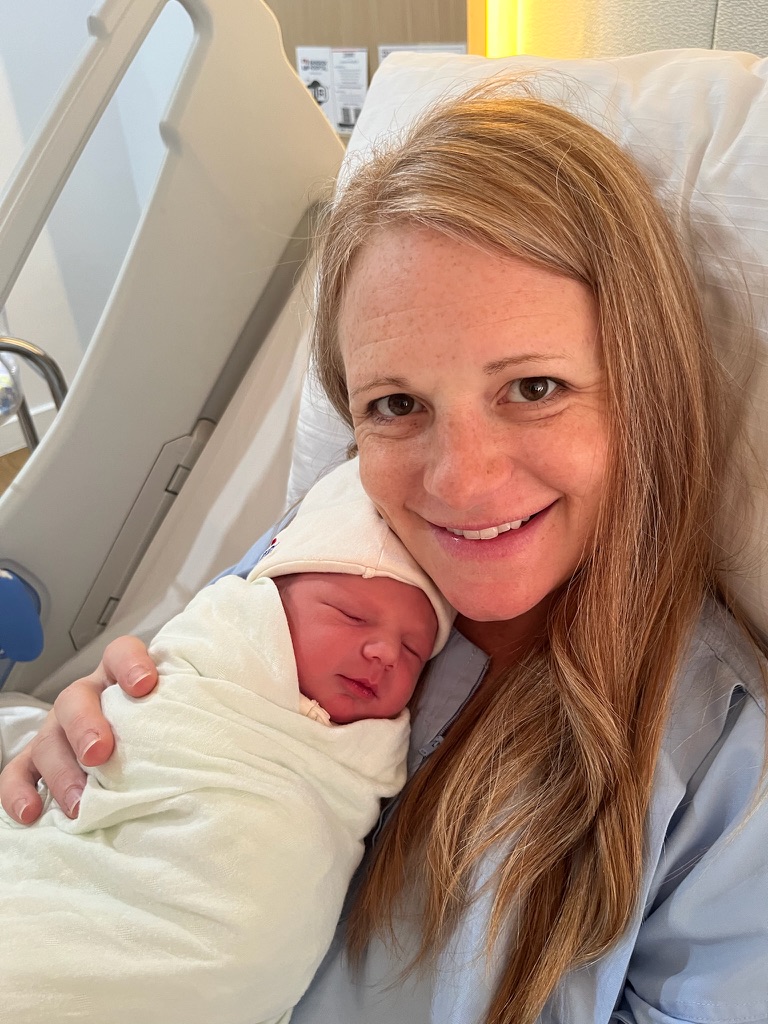
For this child I have prayed, and the LORD has granted me that which I asked of him.
1 Samuel 1:27

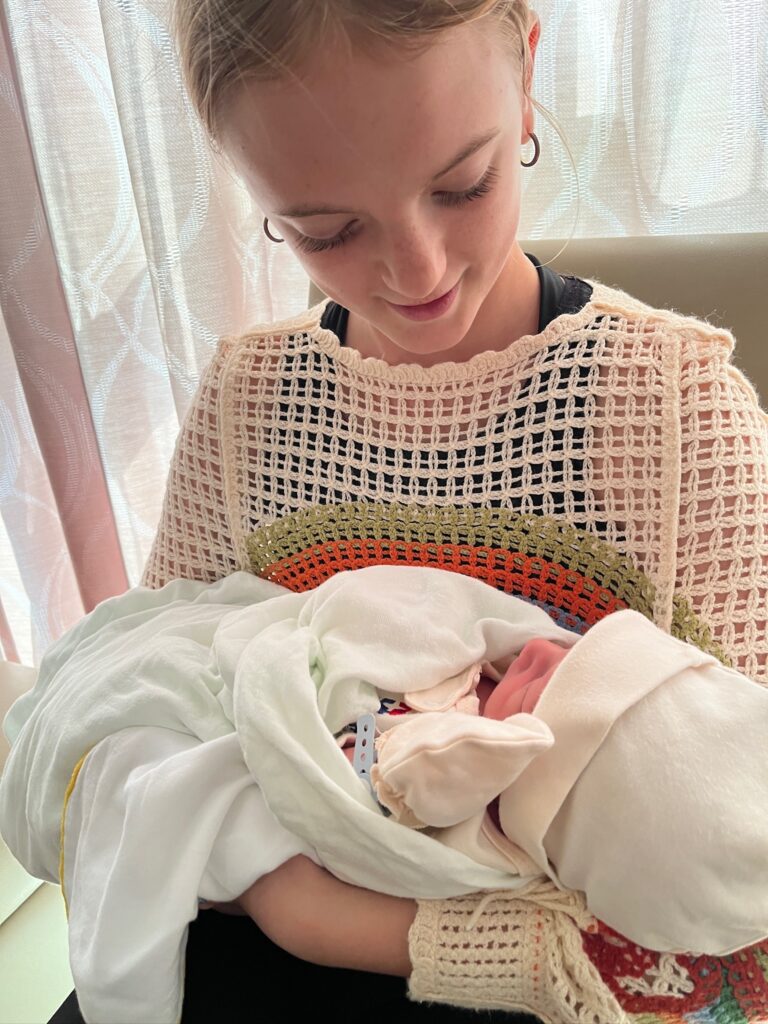
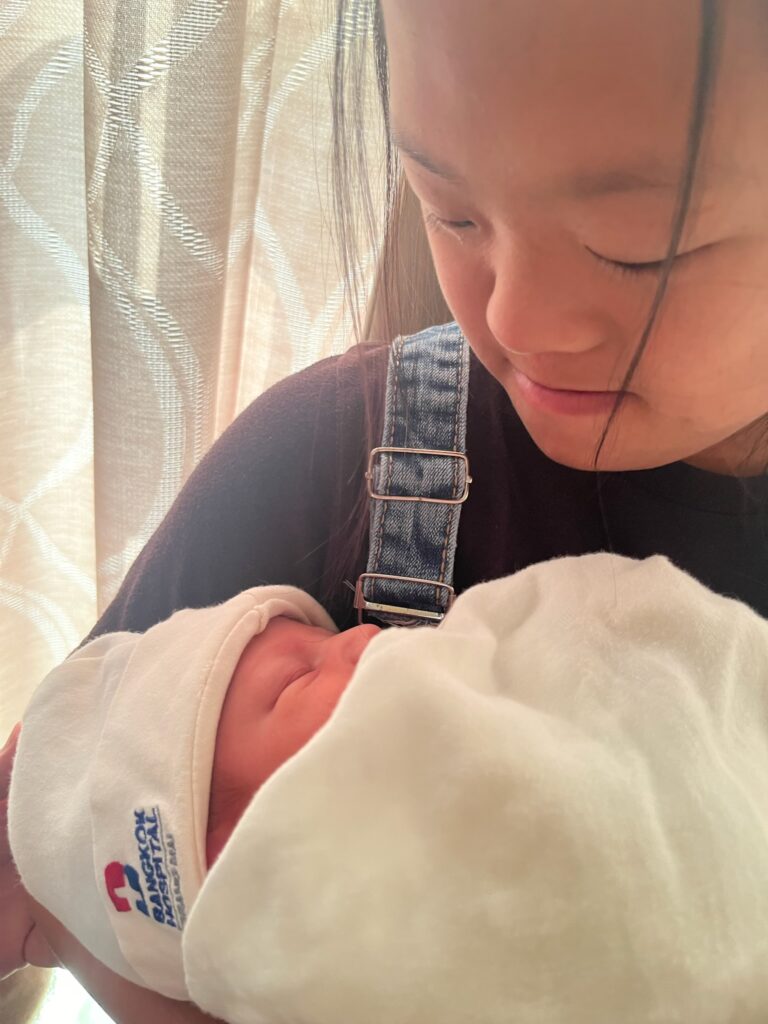
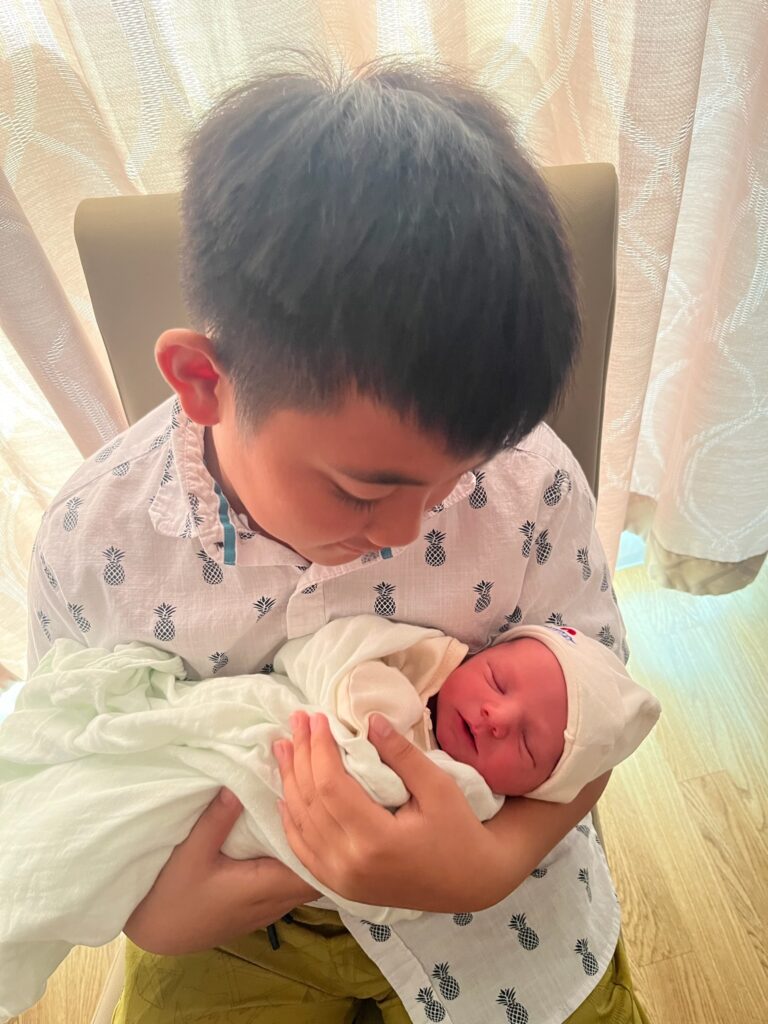


-
After 12 Days of Christmas: Epiphany!
As a grown-up, I don’t think I’ve ever taken the Christmas decorations down before today, and that was true before I knew Epiphany was even a thing. At first, I’d say it was just me dragging my feet about allowing the “most wonderful time of the year” to end. As far as it depended on me–I declared by lingering decorations–we would have our full 12 Days of Christmas even if the rest of the world around us was ready to move on into New Year’s Resolutions involving less clutter and fewer cookies.
The New Year celebrations in Thailand overshadowed Christmas, almost swallowing it up: the numbers 2024 were displayed in red and green almost as if it were synonymous with “Merry Christmas.” There are plenty of Christmas decorations around Chiang Mai, in keeping with the city’s intercultural flair. The last time I was anywhere a Christmas tree had been erected, it was still up…and I like that. 2024 is the year of the dragon, a tradition Thailand shares with other Eastern cultures: the red and gold New Year décor blends right in with the glitzy glittery sort of Christmas décor that seems to be favored here. [Sidenote: I’ve probably seen more of the puffy sort of tinsel garland this year than in the past 20 years of Christmases in America combined. It reminds me of my Grandma’s Christmas tree in the late 80s/early 90s…you know, around the same time in history that we rolled our jeans at the ankles so they poofed out like MC Hammer pants.]
Yes, our Christmas tree is still up. Christmas was truly lovely in all the most important ways for us this year. We had a joyful celebrations with the ZOE family, and hosted a Christmas party for the ZOE Child Rescue Team.
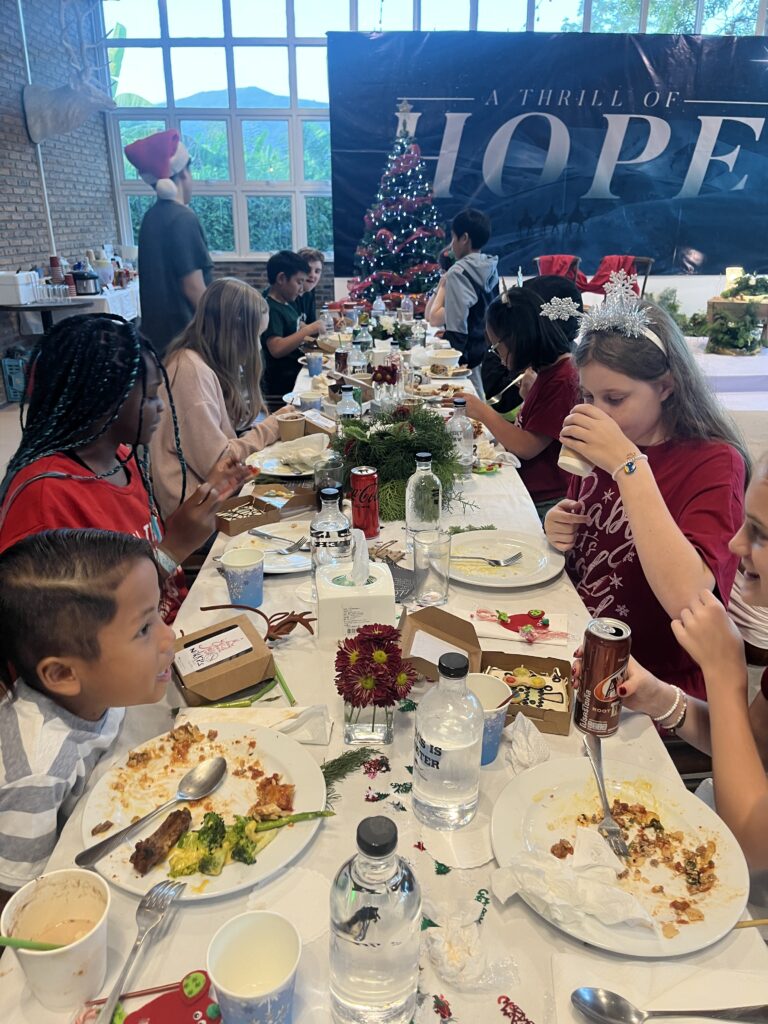
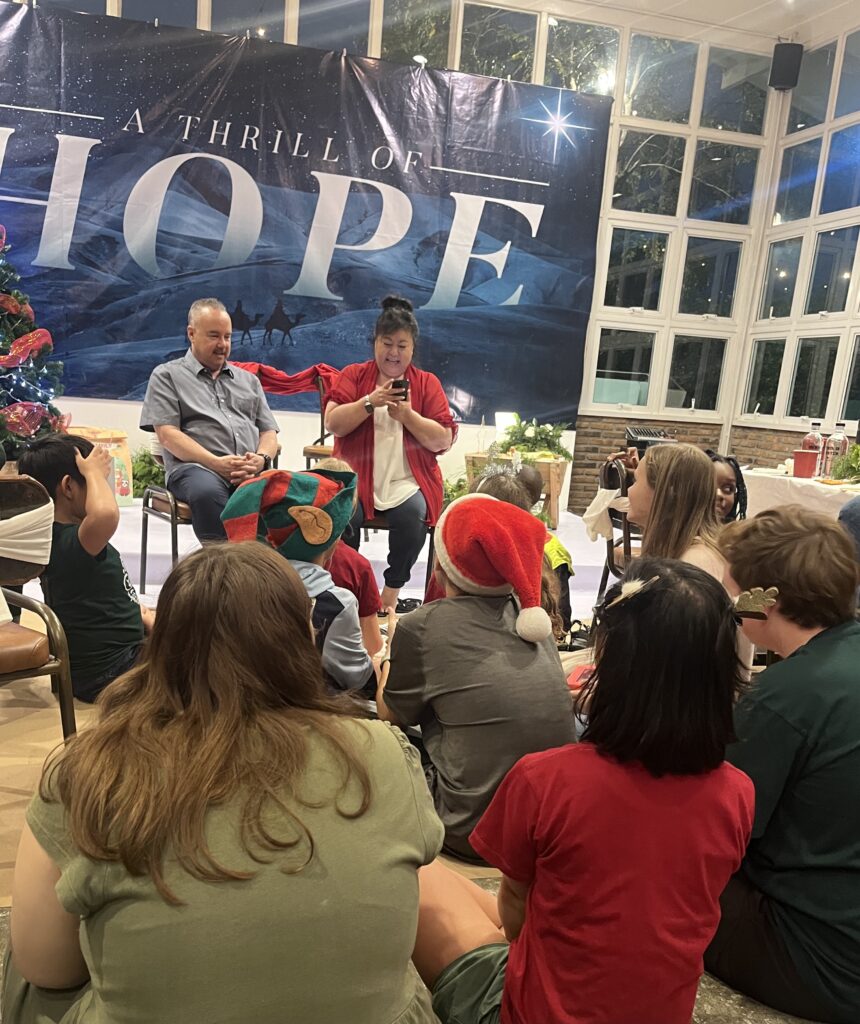
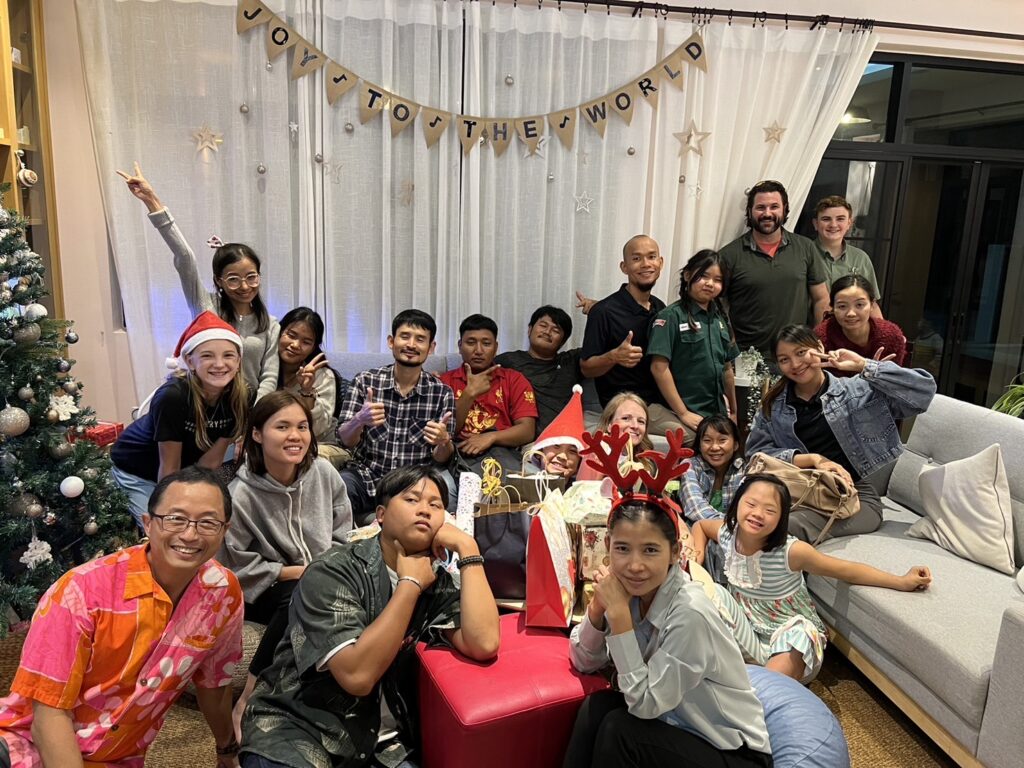
At our international church service, we heard scripture read in a multitude of languages I didn’t know existed and worshipped with believers from all over the world. We took our annual Christmas church service photo in front of palm trees instead of a Christmas tree, void of fancy dresses or sweater vests.
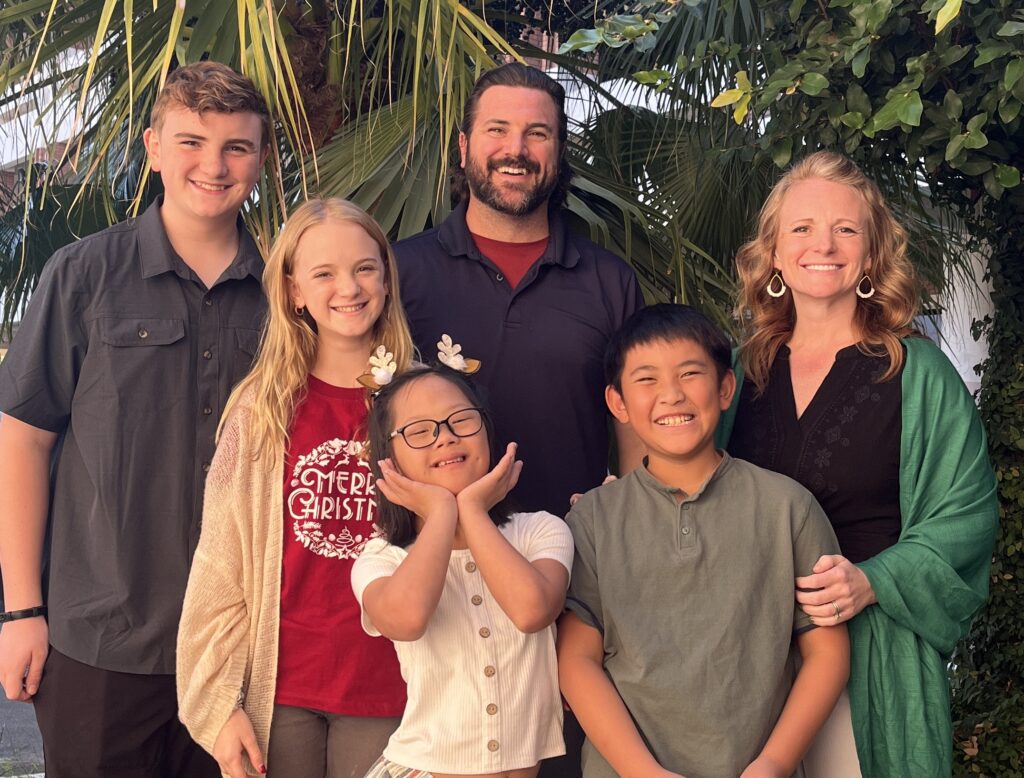
However, I admit the coziness of the days between Christmas Day and News Year’s Day left me wanting. I still snuggled under my “Joy to the World” blanket, drank my coffee hot (even though iced is more appropriate to the climate), and tried to bask in the glow of the Christmas tree in our living room for some heavy hours of reading and reflecting. But I missed my fireplace, the snow outside, the sound of the wind howling, and reddiwhip to put on my coffee.
I was today years old when I really realized just how culturally bound my “feeling of Christmas” has always been. Snow wasn’t a part of the first Christmas. There was no bedazzled Christmas tree beside the manger. Stockings weren’t hung by the chimney with care on the night Jesus was born in the stable. Of course I knew that … and yet those things have always been a part of how Christmas “feels” to me. Realizing that, Epiphany carries new weight for me this year and is more beautiful than ever before.
Traditionally, Epiphany is the day the church has set aside to remember the wise men coming to Bethlehem to find “he who has been born king of the Jews” (Matthew 2:2). The wise men came from the East. I am a Westerner, I think according to Western ideas and have been shaped by my Western culture. I now live in the East and am daily becoming accustomed to Eastern ideas and the deep-seated customs of Eastern culture. The men who came to find Jesus came from this side of the world. Buddha walked the earth hundreds of years before Jesus and so I wonder: were the wise men schooled in Buddhist thought like the kids here in Thailand are today?
The wise men were astrologers or magicians: wealthy men who accurately discerned a message written in the stars. They came to worship, but they were not Jews waiting for their Messiah: they were Gentiles from a foreign culture, with totally different ideas, practices, traditions, and culture. A lifetime of astrological study, a very long cross-country journey, and their diligent search for one bright star culminated as they “rejoiced exceedingly with great joy” over finding young Jesus (Matthew 2:10). They bowed in worship to a tiny king and lavished gifts upon him (Matthew 2:11). This wasn’t at the manger, but I am glad the wise men are a part of our nativity scene anyway…we need them in this story.
After the gifts were given and received, the wise men’s part in the greatest story ever told just ended: in a quiet, anti-climactic finale we are told they chose to “return home by another way” (Matthew 2:12). The wise men’s experience of Christmas brought exceedingly great joy and—also—complex feelings of a darker nature (fear? Anxiety?) that caused them to act in caution and secrecy. When they chose to “return home by another way” they were choosing to disobey the local government official’s direct orders (see Matthew 2:8). This, in part, led to the “Massacre of the Innocents:” the tragic deaths of so many innocent children at the hands of a power-hungry government. And so Matthew’s account of the Christmas story ends with weeping and lamentation that could be heard miles away (Matthew 2:18).
I scanned the Christmas accounts for emotive sort of words that give us clues to how that first Christmas may have “felt.” Here are a few of them, in no particular order: shame, resolve, contemplation, fear, rejoicing, great joy, warning, lamentation, weeping, refusal to be comforted, greatly troubled, fear, power, holy, wonderful, blessed, rejoicing, exaltation, mercy, great fear, great joy, haste, wondering, pondering, glorifying, praising, peace, marveled, give thanks, “and a sword will pierce through your own soul.”
Christmas is beautiful, as we celebrate our God who took on flesh in the most extraordinary way through the most ordinary of miracles. Christmas is complicated, for all the same reasons and more.
The celebration ends, after 12 days of Christmas, with Epiphany. Epiphany recognizes that Jesus is a gift not only to a specific people, but a gift unto all the world. The celebration of the coming of our LORD is one that transcends culture, and it has done so from the very beginning. Upon entering the world, Jesus radiated love so bright and so bold that the whole world could see. Those wise men from the East traveled far in search of the glory of God with lavish gifts and hearts of worship. Jesus came for the children of Israel AND for those in the East. He came for you. He came for me.
-
Simple Joys, Learning from the Birds.
We have an Acerola Cherry Tree. We didn’t plant it. We didn’t know it produced fruit. When it did, we had no idea what fruit it was. Thanks be to google, we now know our home to be equipped with an Acerola Cherry Tree.
They aren’t like any other cherry I’ve ever tasted. Somewhere between the flavor of a tart peach and maybe a crabapple crossed with a grape, yet with the texture of a soft plum, shrouding three triangular seeds, and encased in a vibrant red color, these little delights are delicious to snack on. I often grab a handful whenever I see their spectacular reds contrasting against the even toned green leaves surrounding them like ornaments on a decorated Christmas tree.
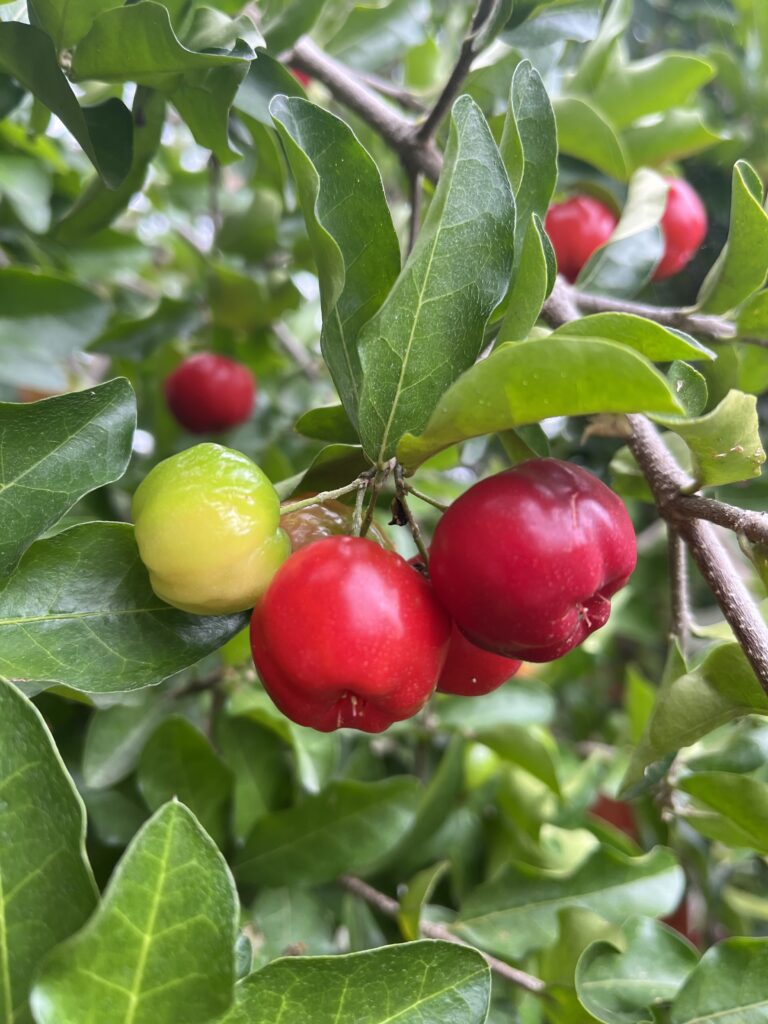
I dove into the depths of the interwebs, trying to identify this mysterious fruit tree in our front yard. Not quite a cherry, but also not a crab apple, how does one begin to search when the identity is difficult to describe? But google didn’t let me down. I learned some impressive facts about these little beauties. The Acerola Cherry is PACKED with Vitamin C. One cup of these sweet nuggets has the same amount of Vitamin C as THIRTY cups of oranges. Take that Florida! They also have a significant amount of antioxidants to help ward off….er….oxidants.
The little factoid that I didn’t expect was their shelf life. They last maybe two or three days being the reason you probably won’t ever see them in a store. A couple days. That’s it. I thought it was the birds stealing my snacks, but the reality is, those cherries just need to be eaten when you see them. You mustn’t wait or you’ll miss out. Maybe the birds know that too as I’ve seen plenty of red in the morning and not a cherry to be found in the afternoon. While that seems depressing, the reality is, this tree continually produces more and more cherries. I’ve picked the tree clean one day and harvested a heaping bowlful the next afternoon.
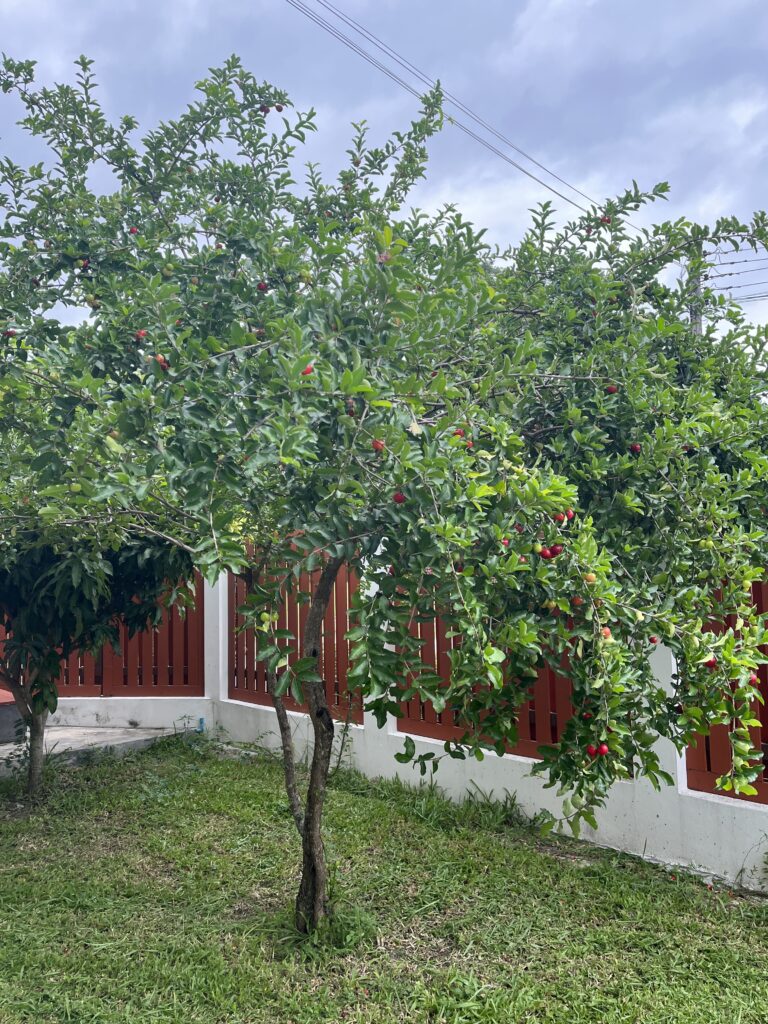
Having grown up on the heart of farm and ranch country, I’m all too familiar with the cycle of planting, tending, harvesting and canning. Harvest comes but once a year. A late frost, a stray hail storm, heavy rains, droughts, and the like, all drastically impact that one time of year where all hands are on deck to collect and store the bounty so we can enjoy it until next year. A continually producing tree seems more reminiscent of the Garden of Eden than anything I’m familiar with from my past.
When the Israelites meandered through the desert, the Good Lord provided daily manna (keyword: daily). They collected in the morning, enjoyed it through the afternoon and started the process again the following day. Some Israelites didn’t like the idea of a daily harvest. Apparently it’s too much work. Being lazy-minded yet disguised as prudence, some tried to store several days worth only to discover the manna didn’t keep. Maggots and worms rotted the daily bread, requiring the chosen folks to make a choice every day: harvest and eat, or sleep in and starve.
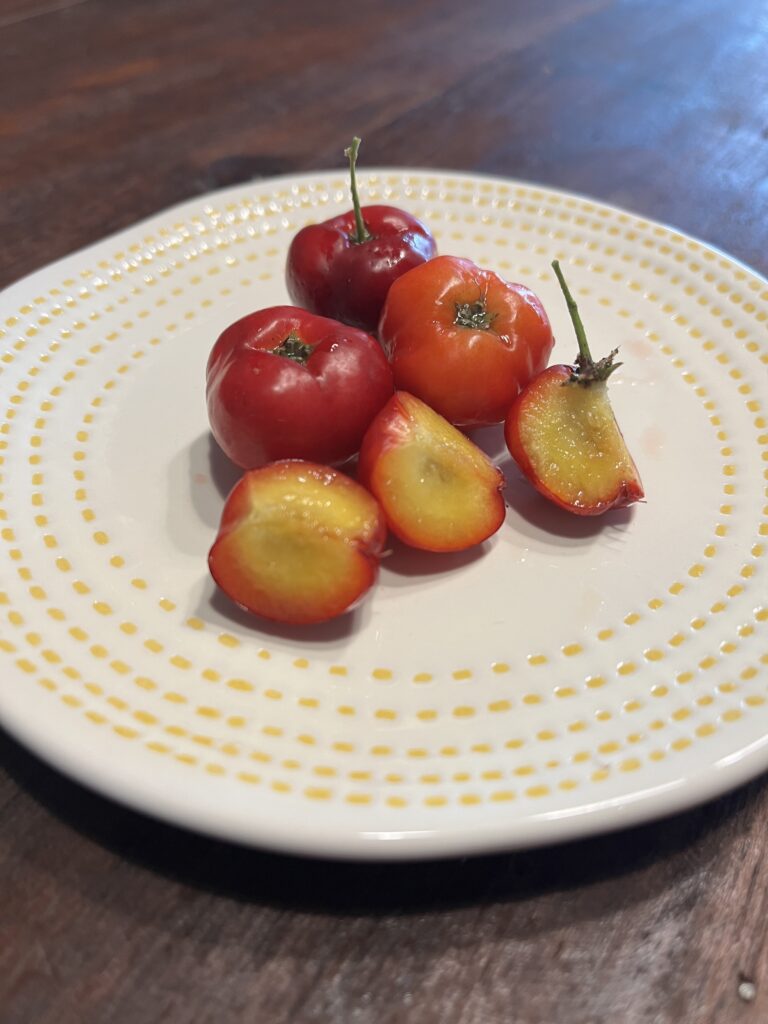
The parallels between mysterious manna and my mysterious cherry-like fruit are readily at hand. The Lord provides daily. And like those “prudent” Israelites, I can dupe myself into thinking I can get my fill of Jesus in bountiful harvests to last me through the week, month, or year. The reality, however, is Jesus is my DAILY bread (daily cherries). His unique flavor, subtle yet contrasting beauty, and necessary nutrition are experienced daily. As good as flavor can be, it is a fleeting experience. Once it’s gone, it’s gone. To experience the nuance, depth, and specific characteristics of any flavor, one must consume the food again to relish in the experience.
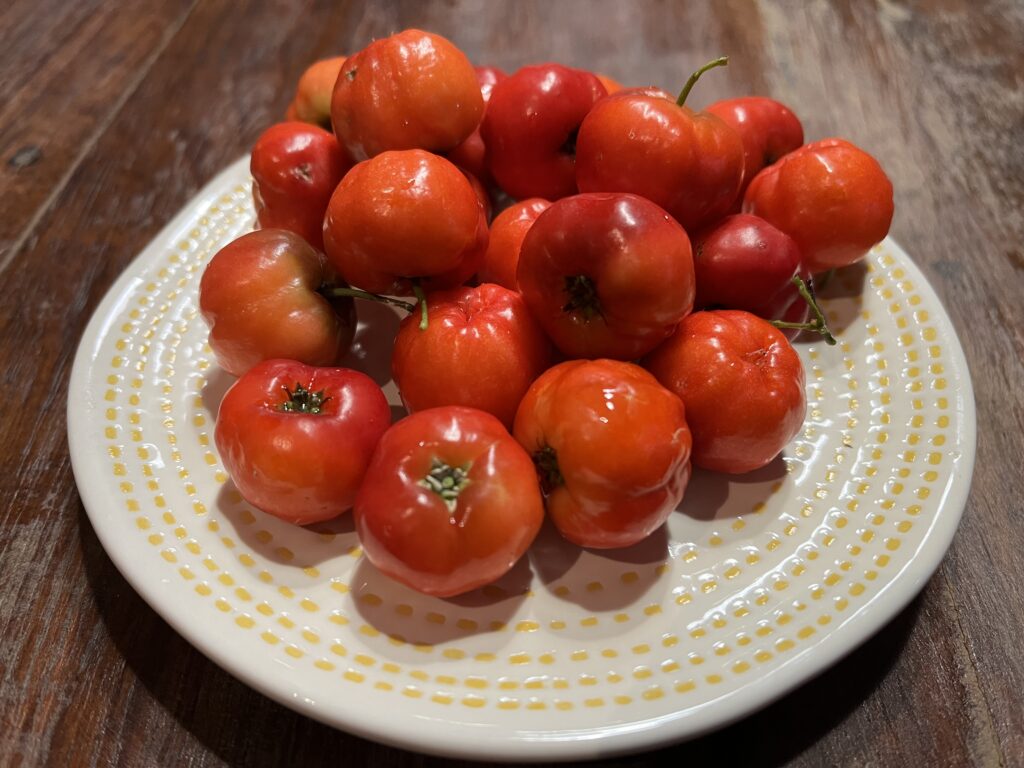
Jesus is all around me, inviting me to partake in his simple joys. Those subtle flavors of His goodness, His mercy, His grace, joy, love, peace, and tenderness are best experienced daily rather than periods of abundance and famine.
I’m okay sharing with the birds. God feeds them daily too. Why shouldn’t we both eat from a life giving tree? Maybe my winged friends know more about daily bread than I do.
-
Get Used To Different
It has been over a month since my last post and a quick scroll down the homepage would say it is my “turn”. But words are coming hard for me. Everything is. Life just feels hard right now, but it is difficult for me to explain just how or why, beyond anecdotal examples of the small daily frustrations I encounter here and there. I think it is because everything is different. Not all bad. Not all good. But very different.
As a homeschooling mother, my main job right now is to re-establish the routine of the homeplace: basically doing the same things I’ve always done in a new place. But it is hard to do the same thing when everything is different. Knocked out of my rhythm, I feel a bit off-balance and even small daily tasks require too much attention and decision. Right now I struggle to think of a single thing I do each day that is the same as it has always been. EVERYTHING is different.
The sounds are different: different birds, different bugs…bigger. Different words and voices and songs.
The smells are different. I hear the rain and open the windows: but can’t find the smell I always knew. A smell I fail to even remember well enough to describe: help me friends…was it grass? soil? With something sweet? I don’t really know how to describe it here either, just different.
The flavors are different. We might find butter, chocolate, avocados: but in your mouth they aren’t familiar. There is a subtle nuance in flavors such that basic comfort foods fail to deliver. I am working to adapt to new staple ingredients, but new ingredients mean new recipes, new utensils, new pans, new methods. For some that might sound fun. For this cook and grocery shopper, I admit it is mostly daunting. Probably because the food is different, my body feels different, too. It is exhausting to have no respite from all that is unfamiliar, even inside myself.
I sit here at my desk a stack of papers and notes next to me. It is printer paper, but a different shape (My PDFs run off the page on the long side and also leave a huge margin on one side along the short side…an annoyance to this recovering perfectionist and her like-minded children doing school on lopsided worksheets). Also, the pens have smaller ballpoints, so my handwriting looks a bit like someone else’s. That is supposed to mean something. Am even I so very different?
I brought the most important pieces of the life we left behind with me: they are different, too. Rod has more confidence and purpose than I have ever seen in him and that changes my role in his life. We moved here with three “littles” and one very tall eighth grader. Now I am the mother of mostly high school and middle schoolers. Even our youngest will be hitting double-digits this month. All these new life phases are bombarding me each day without my permission. So much that is so different.
The kids and I are working on putting together our own synoptic gospel as we study all four gospels together during our school day. As a part of that process we are re-watching The Chosen. If you’ve been following with this amazing show, you might recognize the bumper sticker phrases #LookUp or #ComeAndSee. During Season One, it was #GetUsedToDifferent. That is the part of the story we are in right now. And so I am. We are. We are all getting used to different.
I fear my tone is–once again–desolate, sad, even whiney. That isn’t how I feel.
Sometimes a fog sits heavy around me, yes. Sometimes I feel I’m just spinning my wheels trying to do the same things I’ve always done (cooking, cleaning, and working to develop and find meaningful outlets for my children’s amazingness)…even though that same thing I’ve always done is different here, harder.
Still we plug away and find new blessings when we look for them. I’m certainly not doing it perfectly, but God loves me anyway. When I can see clearly, I am overwhelmed with gratitude.
God is too good,
his world too wonderful,
his work too astounding
to stay in the fog when the sun is shining.
Here are a few things that have me feeling blessed beyond measure recently:
#1) Have you ever heard a seashell orchestra in real life? The way the waves catch the shells and then send them clinking together on the way back out is such a uniquely beautiful sound. I’d never heard it before, and it took my breath away. The whole earth sings praise. (The video doesn’t do it justice, but we tried…)
#2) Baht are PERFECT for illustrating borrowing. Such a fun blessing as we wrapped up 3rd grade math and reviewed all the sticking points!
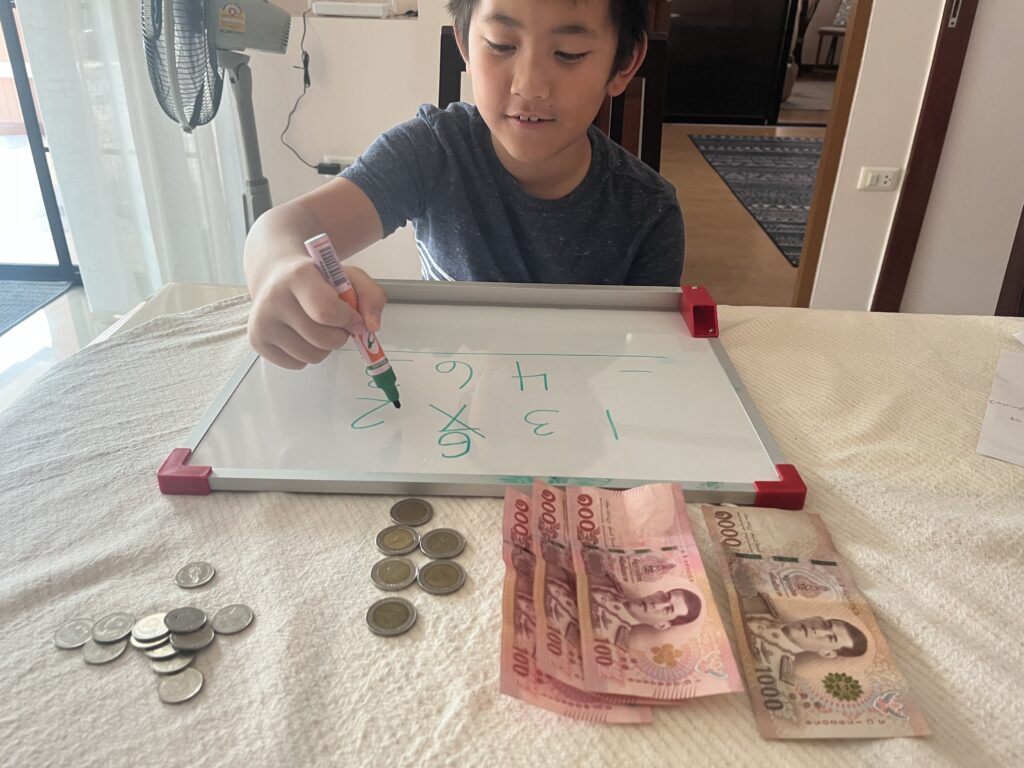
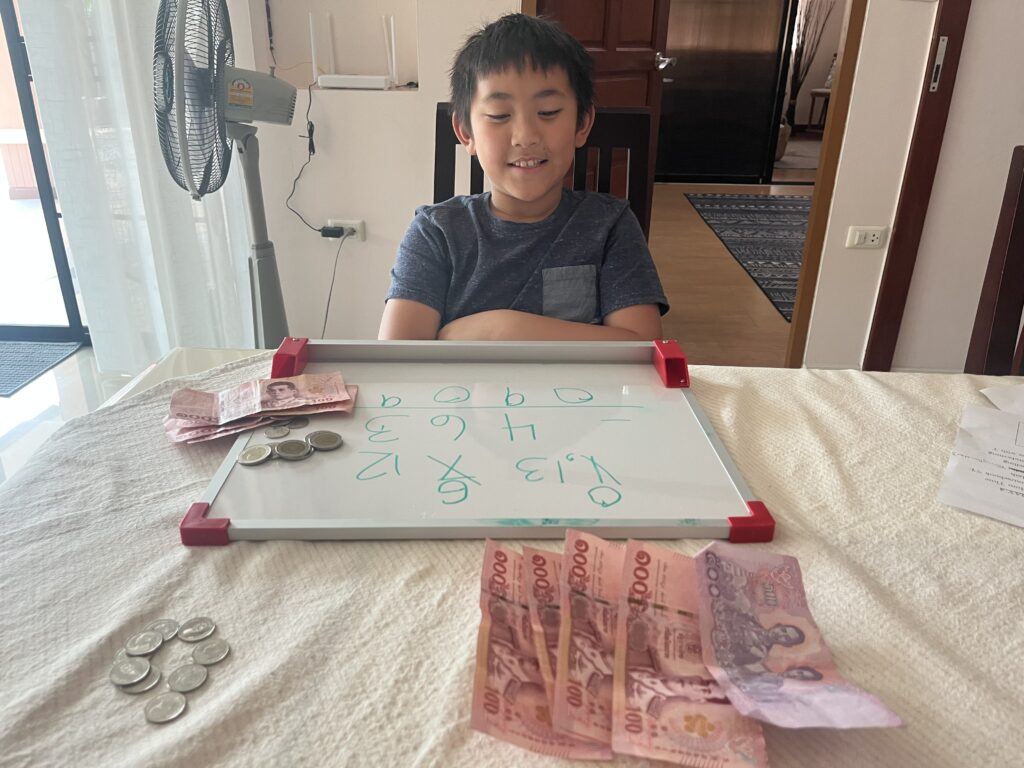
#3) I caught these two spending quality time making music together. I was able to sneak the phone around the corner just in time to catch this. They are both shy to share these talents, but I pray they do this together more and more!
#4) Isn’t this symbiosis of life so pretty?
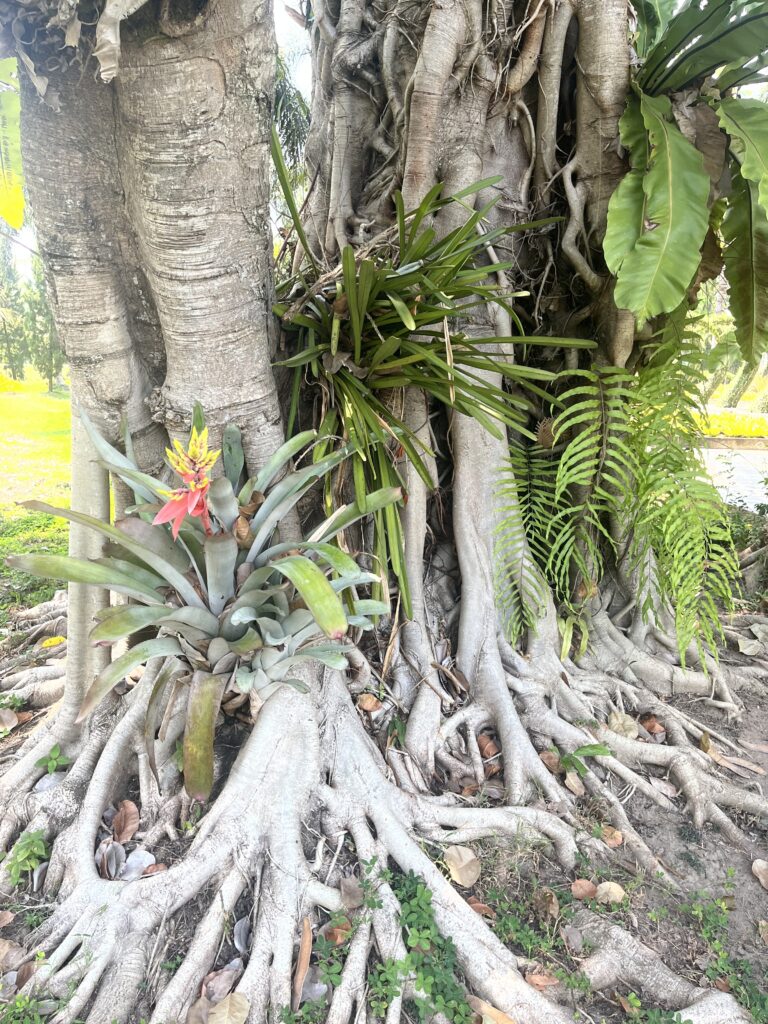
#5) These two American girls brought up the rear in the three legged sack race.
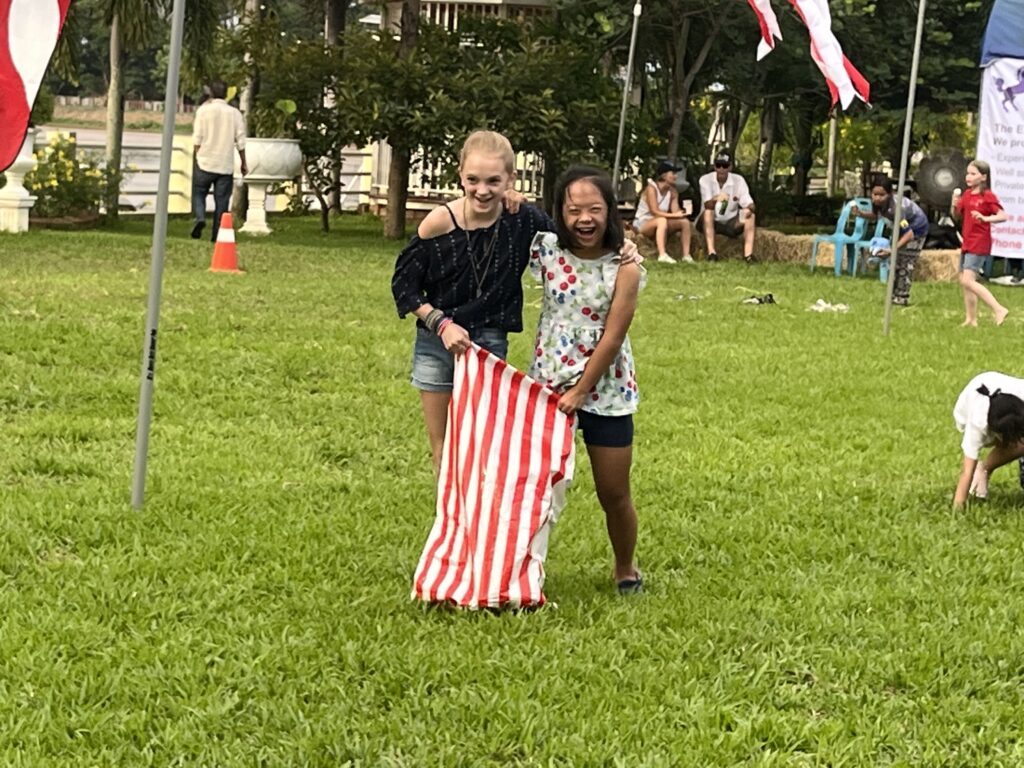
-
Lay Down Your Old Chains. Pick Up Your New Name.
It’s still June. You’d have to be living under a rock at the depths of the Mariana Trench to not know about Pride month, which in essence is an entire month dedicated to identity. While I have plenty of opinions on the merits or lack thereof regarding an entire 30 days dedicated to the discussion of orientation, I’m more drawn to the idea, the concept, the value of identity and its implications on our individual lives.
Several years ago, I pondered the impact of a name. When something inanimate, or even a typically mundane creature gains a name, the level of importance, value, and dignity changes. A dentist hunted a lion. No one cared. But that lion had a name: Cecil. And suddenly he wasn’t just a feline anymore. His death subsequently gained worldwide attention when before we’d be hard-pressed to think of any other time a lion was hunted became noteworthy. A law in Colorado is referred to as the Samson Law because an archery hunter killed an elk. Not just any elk, an elk named Samson. I ruminated on the idea of abortions and what their prevalence would be if we first called the “clump of cells” Rebecca, Stephen, Megan, Quinton, or Sarah. Would we toss their small bodies in trash cans if they had names? I’m not certain we’d be so cavalier about the procedure if we named the “fetus” before executing them.
What is the value of a name? If you have kids, think about how difficult it was to name them. How many names did you discredit because of negative experiences associated with a person bearing that same name? In many cultures, names are given or changed later in life to further describe the character or calling on the individual. Simon became Peter. Saul was renamed Paul. Here in Thailand, people are often given names but later given nicknames that help define who they are. A translator I knew was nicknamed Shopping because after a rather abusive and demoralizing encounter with his father, his mother took the young boy to a mall where the big letters SHOPPING were displayed above and whispered in his ear, “Someday you will be as big as that mall.” She was trying to keep Shopping from identifying himself as the victim of abuse and to call him to rise above it into something great.
Our names convey identity. We all want to be known. We’re in a constant state of tension between wanting to stand out and yet not be alone. We want to belong. We carry the burdens of past labels: whether someone had spoken them aloud or they were descriptions we placed on ourselves. We’re in a never-ending battle to overcome those false identities. Do we believe we’re stupid, incompetent, ugly, childish, insignificant, or afraid? Where do those identities come from? Why do we think those thoughts and believe those identities? Are they even identities in the first place? Have we elevated a lie and given it authority to define us?
It seems so many self-imposed identities are not identities at all. We drop a plate and suddenly we’re clumsy as if we’ve never been able to carry a single object without breaking it before. We make a mistake in a 4thgrade spelling bee and suddenly we identify as stupid. Our bodies haven’t grown at the same rate as our peers so we believe we’re ugly, gangly, and unworthy. It’s remarkable really. Honestly, it’s so easy to see how others live their identity lies yet we’re blinded to seeing our own.
What if we had a given name? Not just a name our parents may or may not have labored in vain over. But a true identity given to us by the One who actually formed us? Is it possible that He who knows the hairs on our head cares about speaking our true name? The Great God of the universe, the One who SPOKE everything into existence. The One who devised the greatest caper of all ages to rescue those who could do absolutely nothing for Him by sacrificing himself on a Roman cross. That God, who took on flesh, walked this earth, dined with friends, laughed, cried, and told stories, is the God who speaks and calls us by name. Not the name on our birth certificate, but our real name. The name that conveys our true identity, the one He crafted.
What if we knew THAT name? What if we lived THAT identity? I asked myself those questions and honestly, the implications of the answers fired me up. If our great God who sent His only Son to lavish abundant grace on us calls me by name, why don’t I know it? Why can’t I hear it? It seems like a cruel joke. But then, what if I could hear it? What if I discovered and knew my given name? What if the God who speaks calls me by name and I actually hear it? What then? The excitement was powerful.
I believe we all crave an identity. Everyone. All of us. We desire to be known. We know we aren’t just another fish in the ocean, a zebra among a pack of stripes or bird in an indistinguishable flock. We’re more than that and deep down, we know it. But where does our identity come from? From ourselves? Are we sifting through personality profiles, feelings, and experiences? Are we trying to find our individual identity by placing ourselves into various groups, classes, orientations, clubs, and races? Or, is there a way to actually push through the noise, the junk, the lies, the hurt, shame, and chaos to find our true selves? If the God who created you as you and me as me, did so on purpose—with all our nuances, quirks, shapes, sizes, colors, and hair patterns the way He saw fit—is it too much of a stretch to think He actually has a name specifically for you? An identity? A real, authentic, and individually chosen identity?
I know mine. I just discovered it a few weeks ago. God didn’t just now give me a new name. It’s the name he gave me when He created me. It has always been there but now, I was given the tools to reveal it with intention. This discovery has transformed me. The transformation is not the same as going one way and now going another. Rather, it’s more like an expansion. Forgive me for the reference as it’s been years since I’ve seen the movie but maybe the experience is like Jim Carrey’s character in the Truman Show. His world was real inside that dome, but that wasn’t the real world. When he finally discovered there was more than what he’d always believed to be his whole world, things changed. He saw differently. He needed to see who he really was. But unlike a fictitious character in a marginally humorous movie, I have seen the lies, broken free, and found my true identity. I didn’t create my identity and it isn’t the one I would have chosen for myself. But it’s mine. Spoken to the deep crevices of my heart by the God who speaks.
I’ve been going to church all my life. I’ve heard all about having a “personal walk with Jesus.” I know about “praying without ceasing,” and “Love the Lord with all your heart, mind, soul and strength.” I’ve been taught to read my Bible daily and pray so I can be close to Him. But I’ve never understood it the way I understand it now.
Maybe our lives are disconnected, lacking purpose, blown around, and shallow because we haven’t been taught how to be known by the one who knows and made us. Doesn’t it stand to reason that if you can truly know God and experience being fully known, just maybe some power or entity who detests God would want to prevent that heavenly orchestrated relationship from flourishing? The same evil that rejoiced when Jesus died on that cross is the same evil who got his teeth kicked in three days later when the tomb was empty. If the Father of Lies comes to steal, kill, and destroy, what makes you think you’re not on his list of targets? Why wouldn’t he make you believe a lie and draw up an identity for yourself through your own power? The last thing he wants is for you to be known by the One who created you.
If any of this pings deep down within you, I’d offer a book recommendation that guided my transformation:
Click here to purchase “Living Fearless” by Jamie Winship.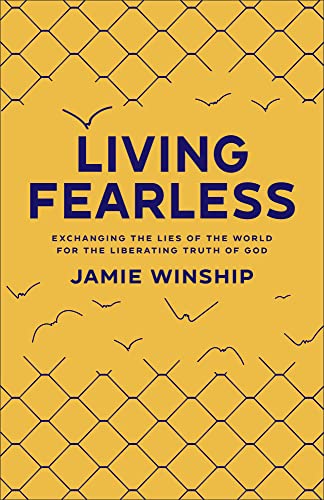
This is not a casual read but it isn’t some scholarly read for doctoral candidates either. Read it cover to cover over a dedicated course of a few days. Make the time to get away. Turn off your phone. Grab a notebook and a pen. Eliminate the distractions. When you’re done, I’d love to hear your name, that true identity given by the One who speaks.
Let’s lay down our old chains and pick up our new names.
(The title photo is just a beautiful photo I took on the beach in Penang, Malaysia where I read Jamie’s book and uncovered my identity.)
-
MORE IMPORTANT THAN A FILTER
I was explicitly told to by my manager at work to always relate whatever project I’m working on or the changes I’m suggesting back to the Scriptures. Let Jesus be THE authority, not Rodney Keim “The Missionary.” The Thai people by nature and culture, are very deferential. Even if they fully disagree with everything I might say, my position as a missionary from America, places me in a position of authority, whether it is merited or not. They might know a better way or have more experience than me, but they will very likely acquiesce to my position simply because their cultural upbringings tell them my status is greater than their’s. We as Americans don’t have a problem verbally battling for better ideas. However, observing our cultural differences is critical to moving forward as a team.
My job title at the moment is “Facilities and Agricultural Advisor.” My current role is to look over the property with fresh eyes and seek out areas of improvement, research how these improvements can be made, and make efforts to implement my research. An area I stumbled upon that didn’t look quite right was the tilapia and catfish farm. ZOE raises their own fish for consumption, but it hasn’t gone as smoothly as they had hoped. The fish have either underperformed, taken too long to reach consumption size, or simply died off. I have no training when it comes to aquaculture, but I do have a knack for spotting things that don’t seem on target. My first look at the fish farm tanks immediately piqued my curiosity as to a potential problem. The water looked like chocolate milk. A general rule I learned many years ago was “animals under stress don’t perform.” Regardless of the animal in question, if they are stressed because of poor handling, extreme temperature, the presence of pests, or low-quality environment, they simply won’t thrive. They won’t eat right or enough. They’ll get sick. The problems pile on top of each other ultimately leading to death.
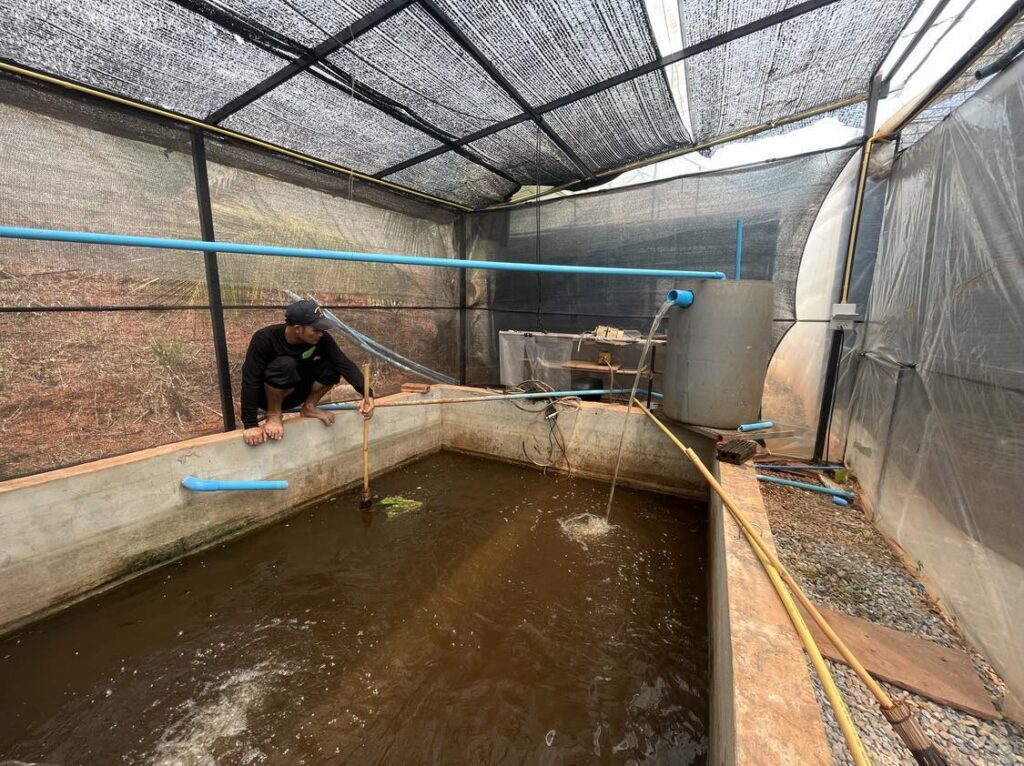
There are over 300 white and orange Tilapia in this tank. Where are they? I could have explained all my training to the Thai staff, but it likely wouldn’t have landed with the weight with which it had bothered my conscience. Fish in Thailand are raised in dirty water all the time. The large ponds and lakes around are all murky and yet people still catch seemingly healthy fish. Plus, they’re fish right? Who cares about a stupid fish?
Remembering my manager’s imperative to allow the Bible to be the supreme authority, I believe God sparked my creativity. I asked a couple of the Thai staff in charge of the fish farm to picture what the water looked like in the garden of Eden. When everything was made perfect, could they picture what type of water the fish were swimming in? Of course, they said the water was clear and clean. This isn’t a revelation. No one needs to be told what perfect water looks like. We all intrinsically know that water should be clean. Furthermore, I told them to think about the air quality we were experiencing. I asked if they felt healthy, strong and motivated to work. I asked if they thought the air in Eden was smokey. Again, they knew immediately it wasn’t. I explained how we all felt off-balance breathing the smokey air and knew we would feel better when the rains come and clean the air. Would it be hard to imagine that the fish would feel the same way, that the water they live in has a direct effect on their wellbeing like the air we breathe? The lightbulbs clicked on in their heads and got excited about solving the problem.
For less than $60 USD, we were able to build 2, double barrel fishpond filters utilizing a lot of materials already on hand. The one Thai staff member who has felt demoralized by the failures of the fish project, has had a renewed sense of purpose, taking pride in his work. He knows healthy water equals healthy fish, which in turn equals healthy food for rescued kids. He knows his area of responsibility is directly related to restoring trafficked kids and orphans. The pride I’ve seen swell in him as been a joy. He stands taller, smiles brighter, and looks forward to making his area look better. We’re still tweaking and adjusting the fish farm, but the Thai staff have a joy about the process which I hadn’t seen before.
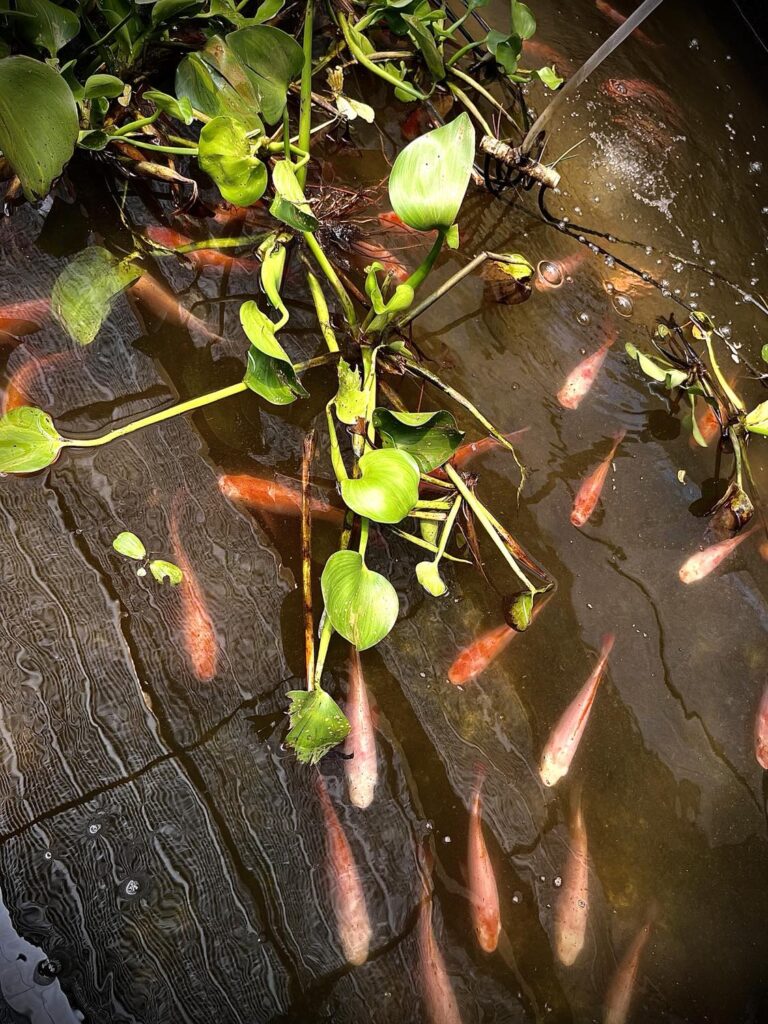
You can actually see the bottom of the tank which is more than 2′ down. Had I not been emphatically told to relate all my projects back to God, we still would have likely installed filters at my recommendation but the joy in my co-worker’s heart would most assuredly be absent. Could it be God cares more about His children’s hearts than fish? I think so. I’m slowly learning to do things His way, but learning nonetheless.
-
Breathing Paradox
In the life we left behind, I was the kind of person who avoided shampoo with parabens or sulphates. I paid a premium for natural deodorant even though it stains your clothes (and admittedly doesn’t even always “cut it”). I chose all-natural soaps and lotions, but also felt that taking care of our skin was actually more about what we ate than what we put on it: so we avoided processed foods and ate a lot of fresh meat and produce. I chose organic when I could and most of the meat that filled our freezers were from animals that were raised and processed within 15 miles of our home. I loved having our own chickens to supply organic eggs and kept a compost bin so that I could grow garden produce and care for our landscape in a way I felt was most consistent with the garden of Eden. My kids ate more vegetables than most and knowing that I was doing all I could to keep them healthy was important to me: a part of my identity, really.
We rarely had sugary drinks, and never artificial sweeteners. Although we loved fresh-squeezed lemonade for a treat, we drank a lot of water…and GOOD water. For a while, we lived near springs that I felt must supply our well because we had the most delicious drinking water at the ranch that I had ever tasted. When we moved away from the springs, we ran our (still very good quality) city water through a reverse osmosis system to make it the best we could. And then got a fridge and ice dispenser that filtered it yet again. Our water bottles were stainless steel or glass…because that is easy enough to do if what they say about drinking from plastic is true. Our leftovers were stored in glass containers, too, and we didn’t even have a microwave. These were all healthy choices I had the luxury to make in that life: and prioritizing the health of my family felt right and good. After all, God made these bodies of ours and gave them to us to use in serving him and to enjoy living in every day.
You know what else we had? Something I never considered as a notable factor in our health: the air we breathed. I took it for granted. We lived in a small town surrounded by more plants than people. The air we breathed each day was probably among the purest on earth, EVEN when the wind blew the smell from the sale barn into town.
Then God, my God, the God who loves each member of my family in unspeakable ways, asked us all to move to the other side of the planet. For the last few months we have been breathing THE WORST quality of air on earth. This is not an exaggeration, but a confirmed fact:
Thai City Tops World Pollution Table
We’ve all suffered headaches and noticed just how tired we feel each day, despite the fact that we have equipped our home with several air purifiers and are able to stay sealed indoors during the worst of it. It has been hot and sunny, and yet the sky has been nothing but shades of gray.
This is a part of the paradox we live.
I no longer have a budget that can support my all-natural body care regiment, nor access to the same kind of food options to feed my family (though I am finding new treasures in the local markets). The water that comes from the faucet must do for showering, washing dishes, and even brushing our teeth; but it is not safe to drink…so we have drinking water delivered in big re-usable PLASTIC bottles. But all of these adjustments confronting our bodies pale in comparison to the difference I see and feel in the air we breathe.
I once spoke on the the Breath of God: teaching that the Hebrew word referring the the Spirit or Breath of God was the same as the Hebrew word for wind. In some mysterious way we are not able to fully comprehend, I believe the air we breathe is 78% Nitrogen, 21% Oxygen, and 1% other gases AND ALSO 100% the Breath of God. So it truly saddens me to see it so polluted. It breaks my heart to realize that most of the people we now surround ourselves with have NEVER known the kind of pure air I’ve breathed my entire life. Nor do they know of the life-giving, soul-cleansing, power that comes from the knowledge and acceptance of the Breath of God.
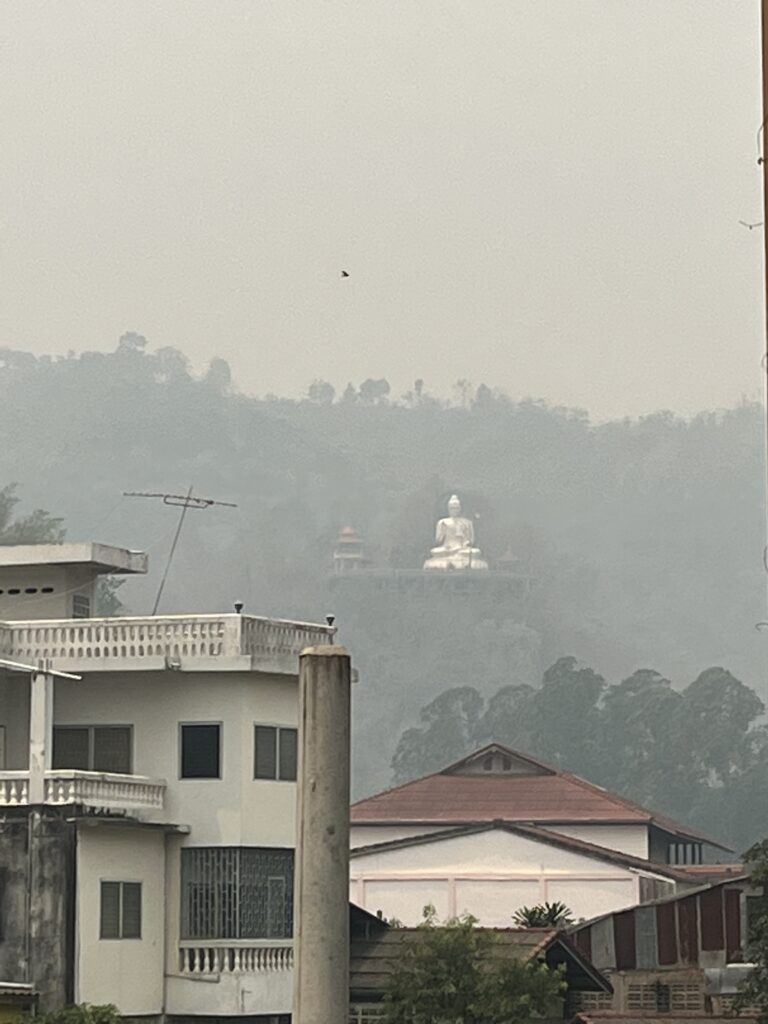
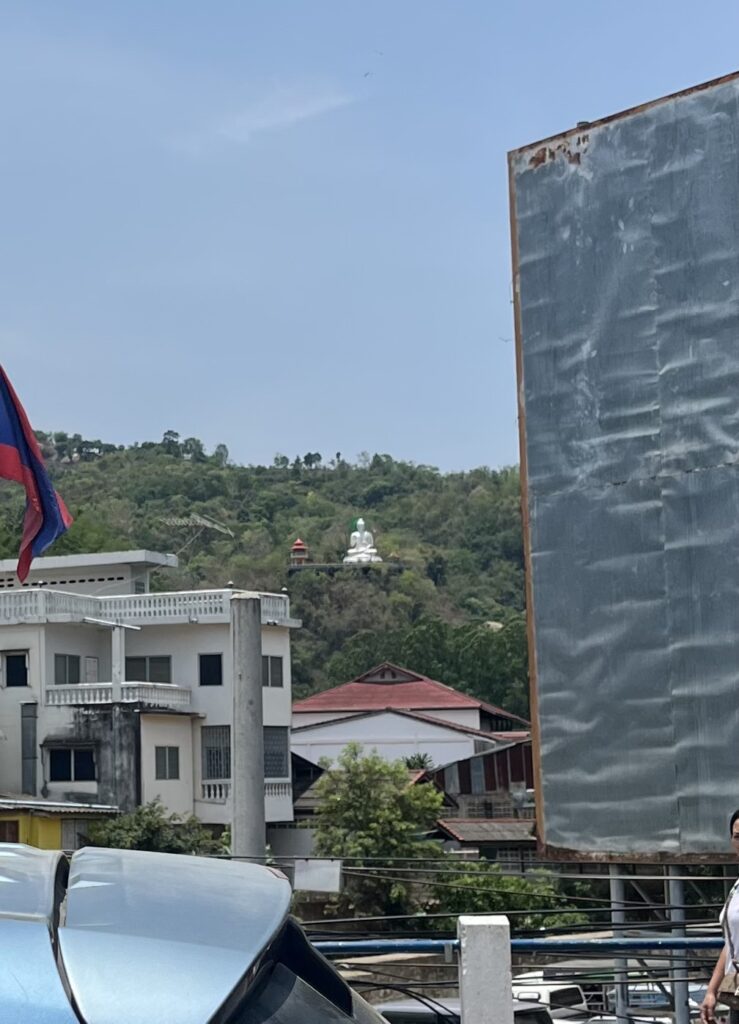
A few days ago we finally had a major cleansing rain. The difference between the air today and the air a month ago is stark. We can now see far enough to know that our entire city is surrounded by mountain ranges not just smog. However, now that I know how one measures air quality, I am aware that even when the air looks this clear, it is still not as clean as the air back home at its worst. And I imagine our Nebraska ranch land air is nowhere close to as perfect as it was the day God breathed the world into existence. (This idea has Rod thinking in kingdom metaphors as well, see his post: https://ourparadoxology.com/it-could-be-worse-is-not-the-same-as-being-good/). Someday, the kingdom will come and the whole earth will be made new. I pray my new neighbors will be with me in that kingdom, when we taste the Breath of God free of all contaminates. Come Lord Jesus, Come.
